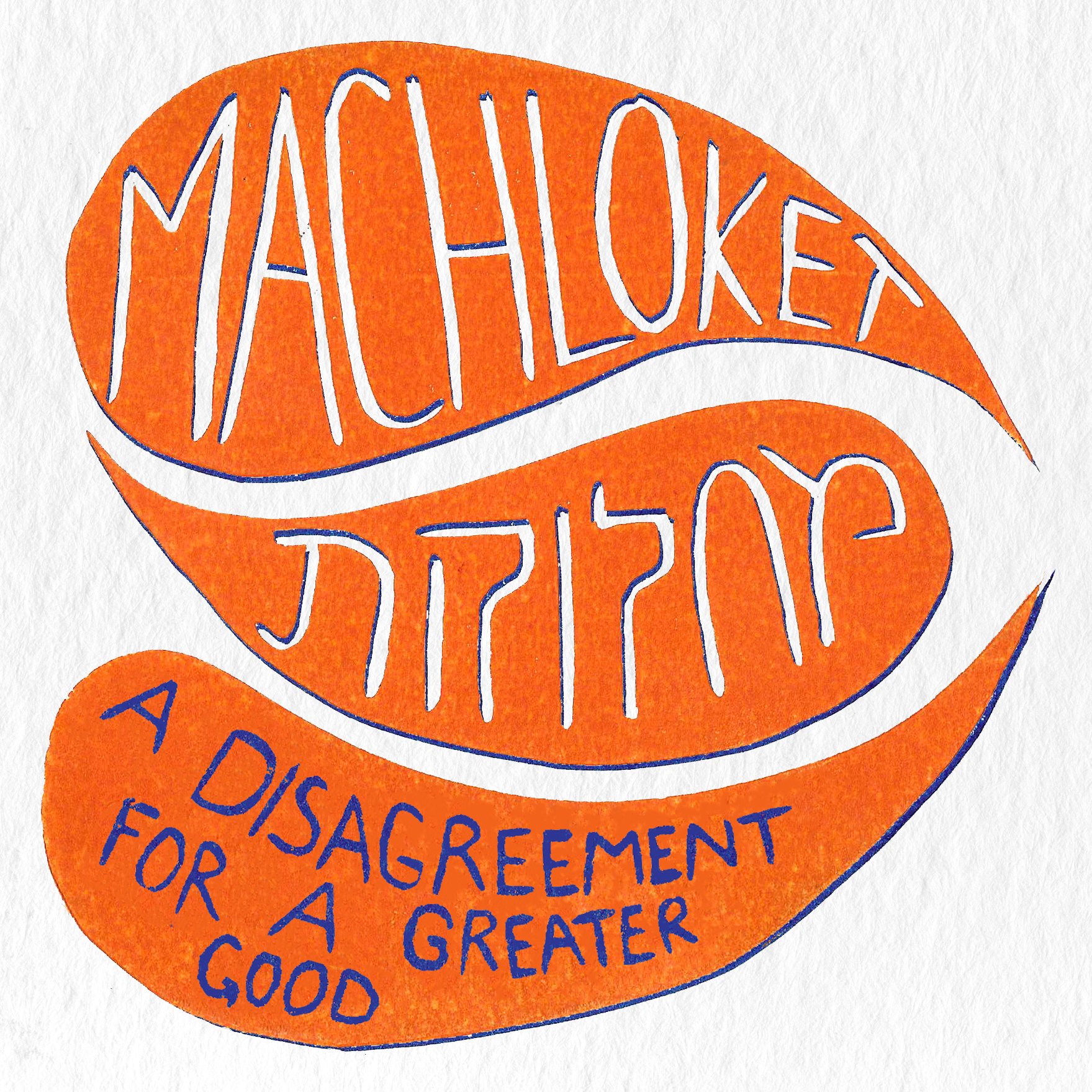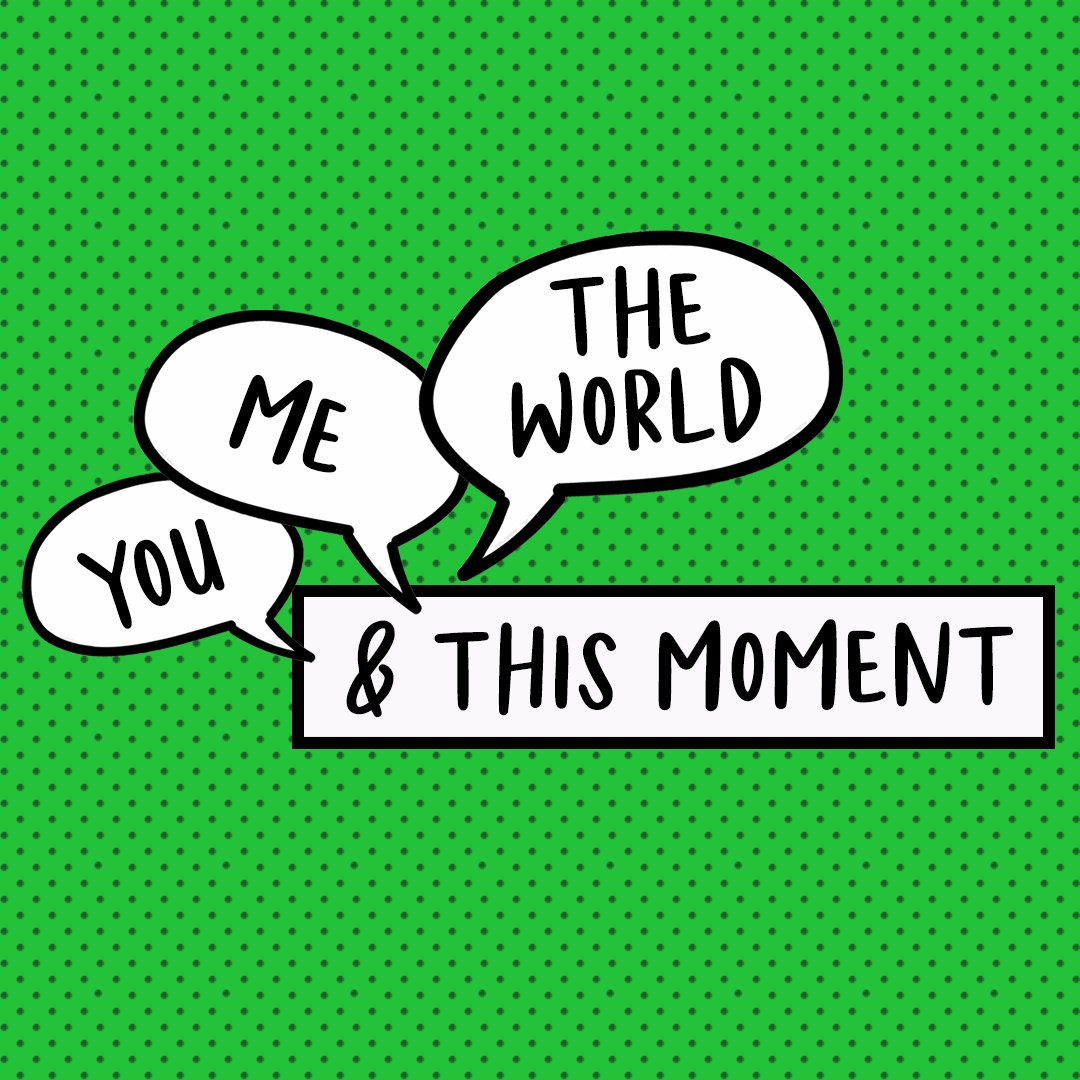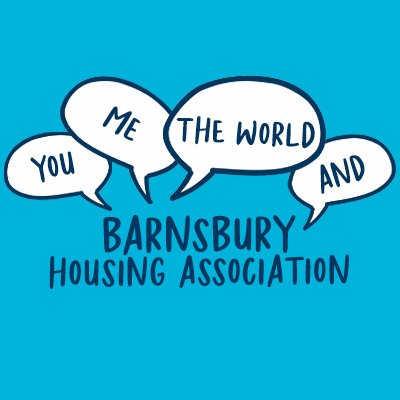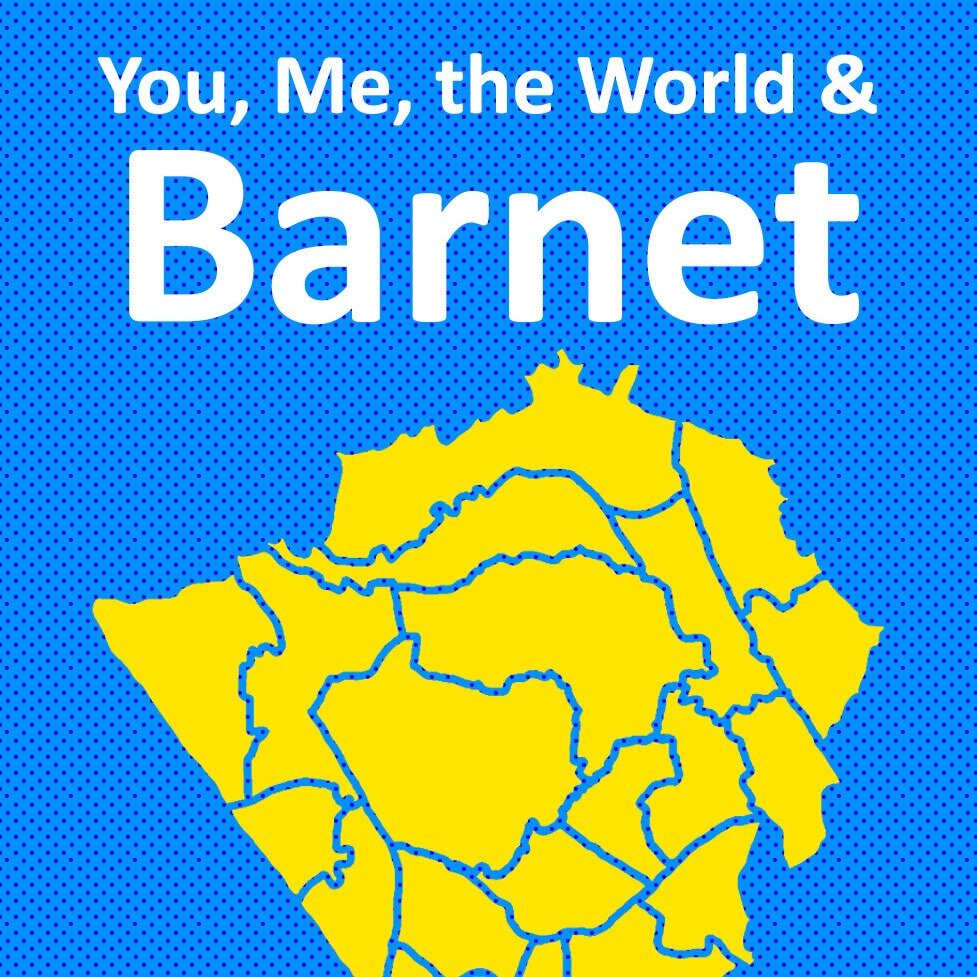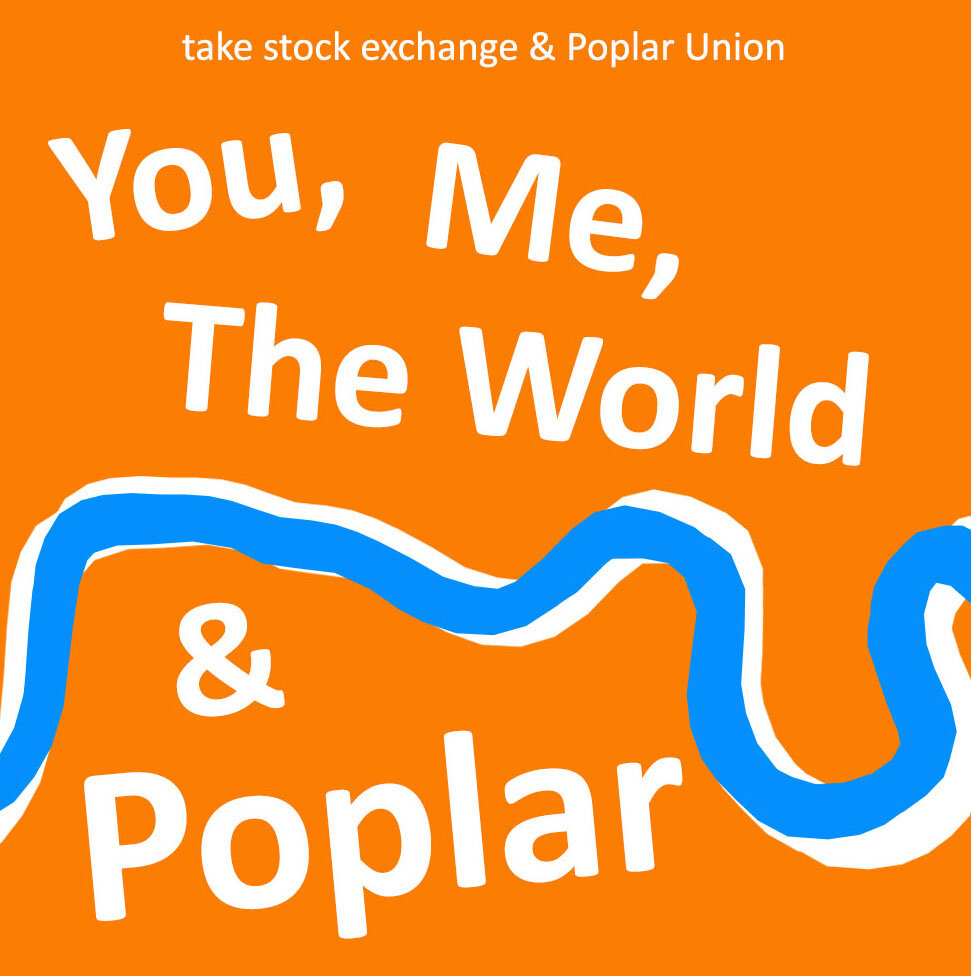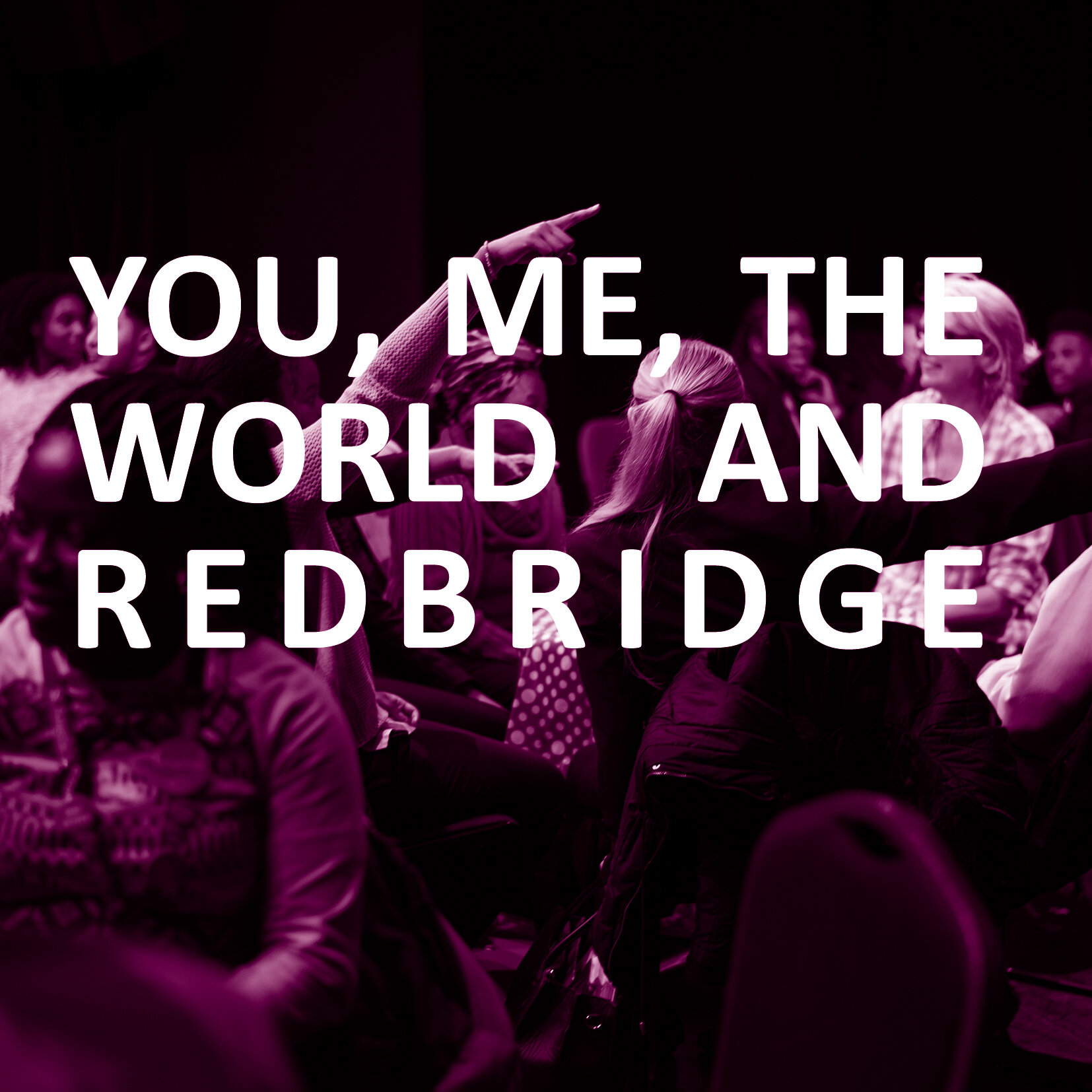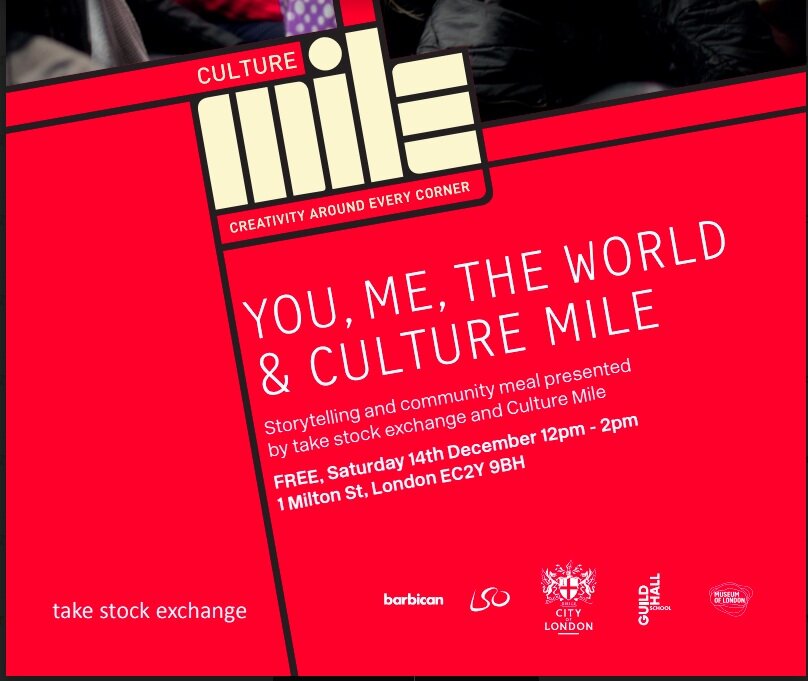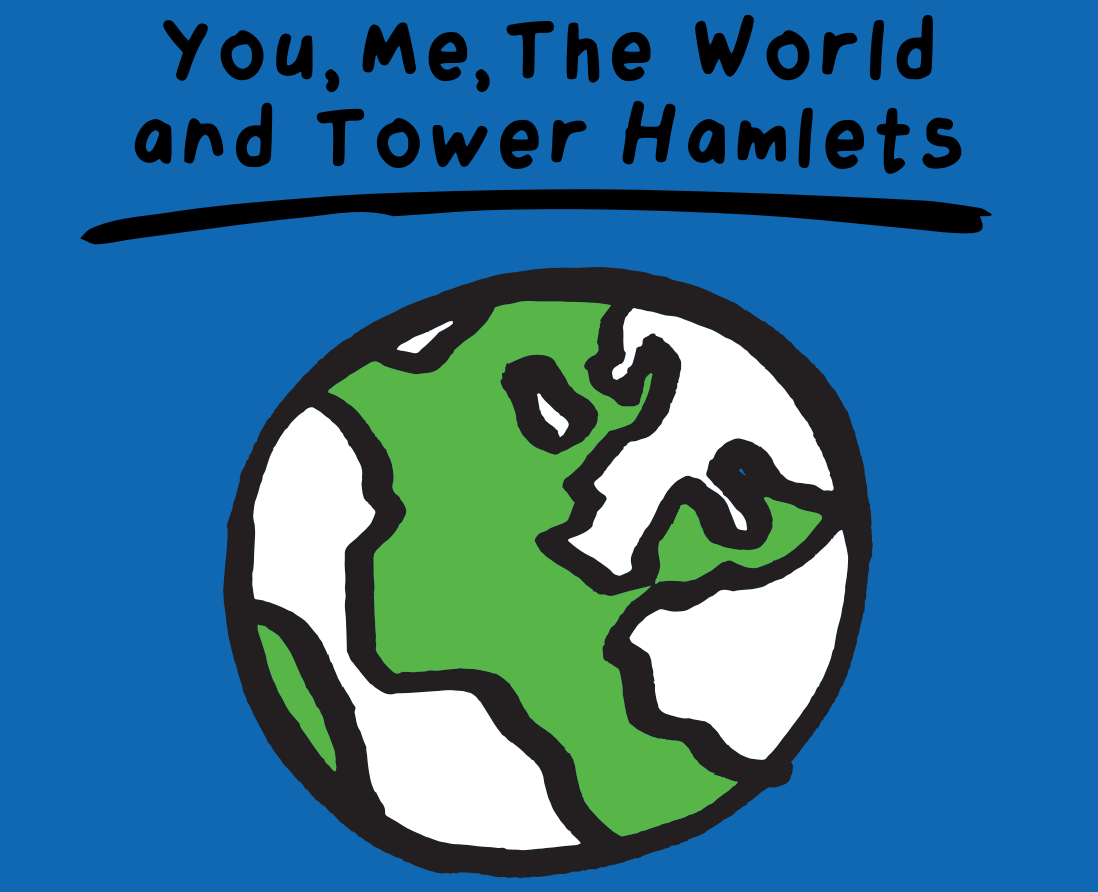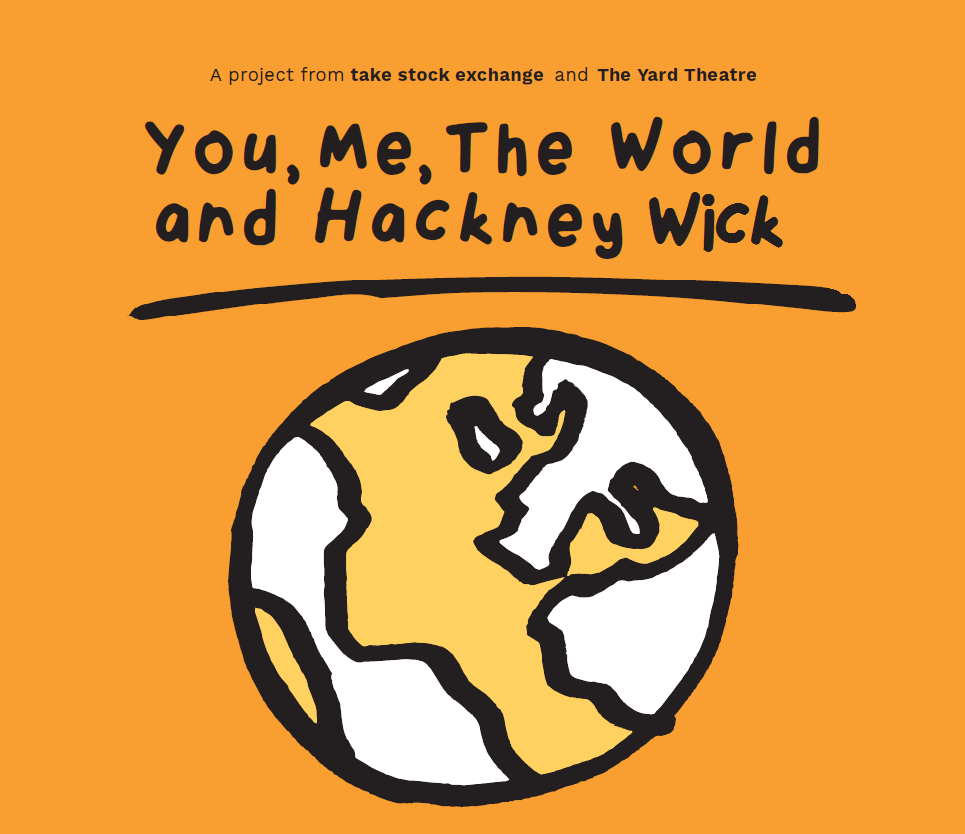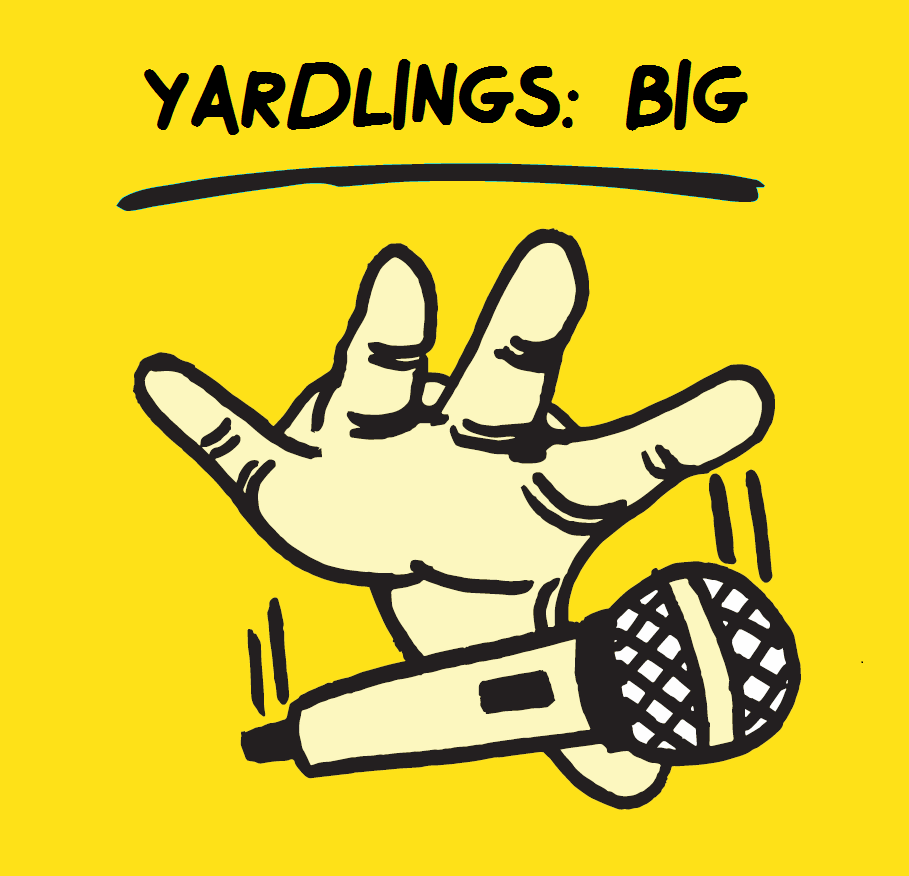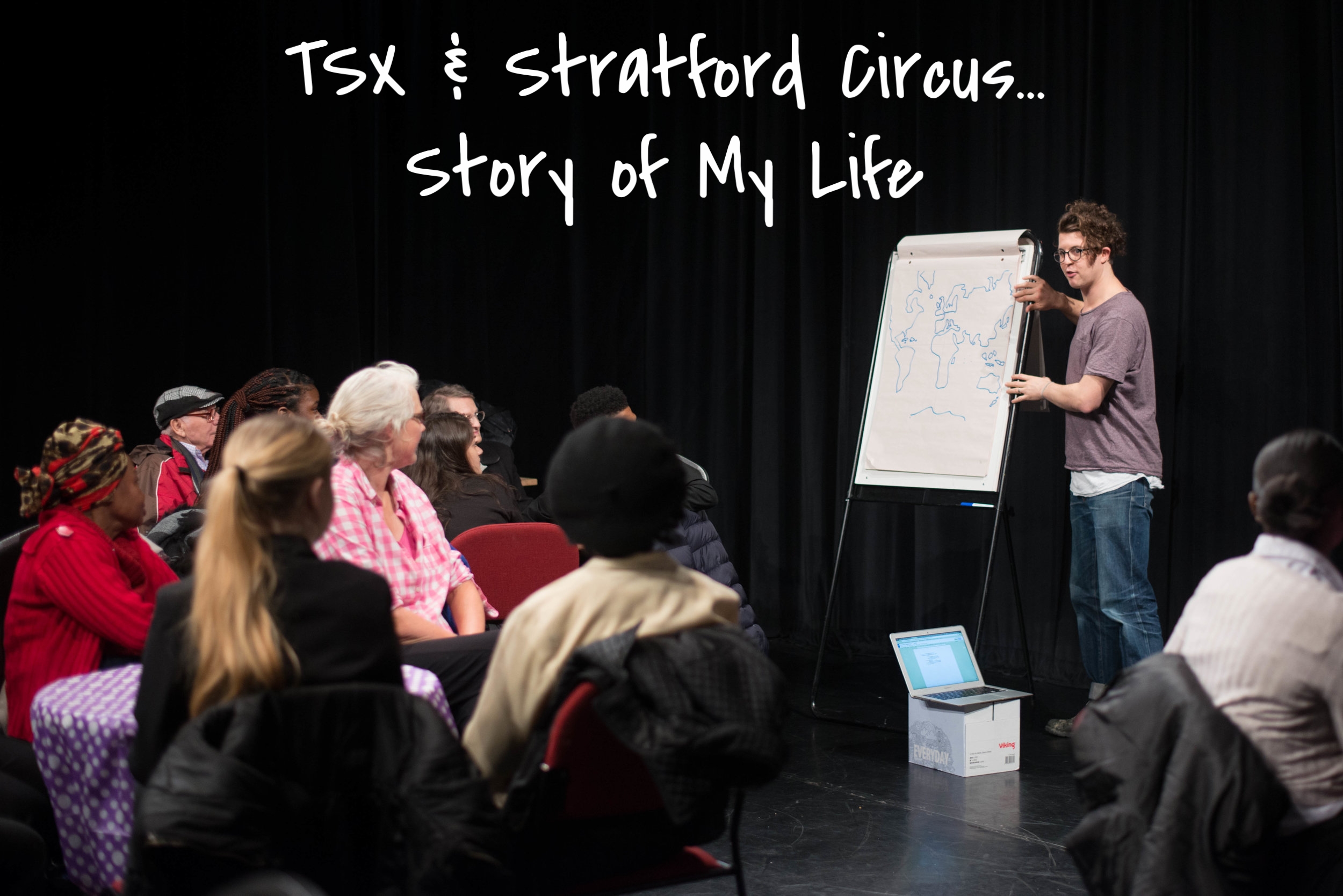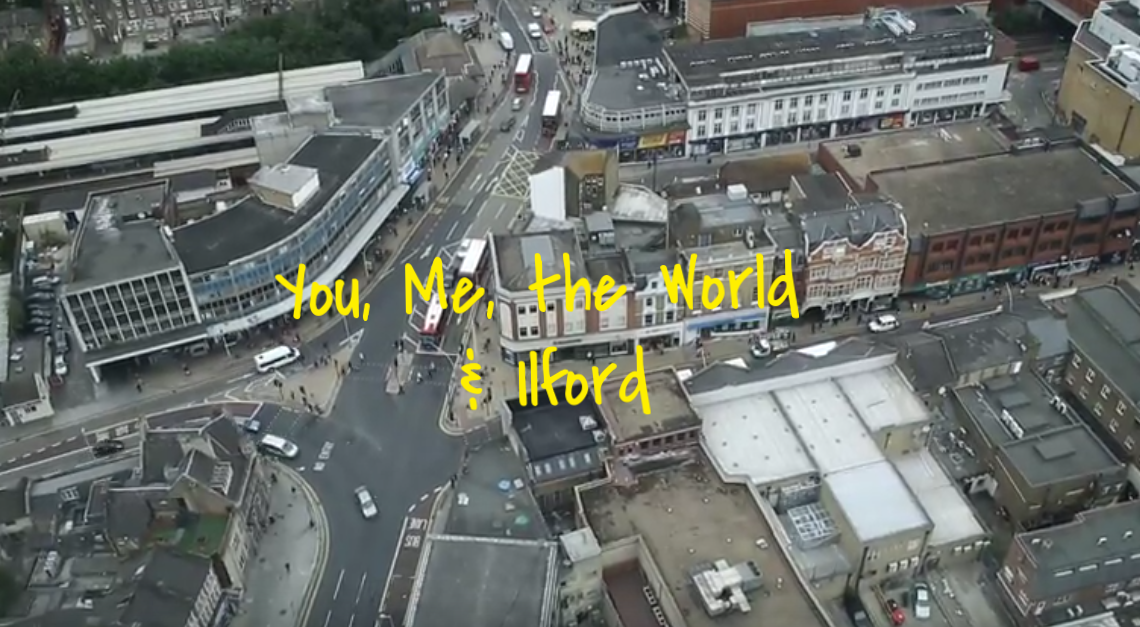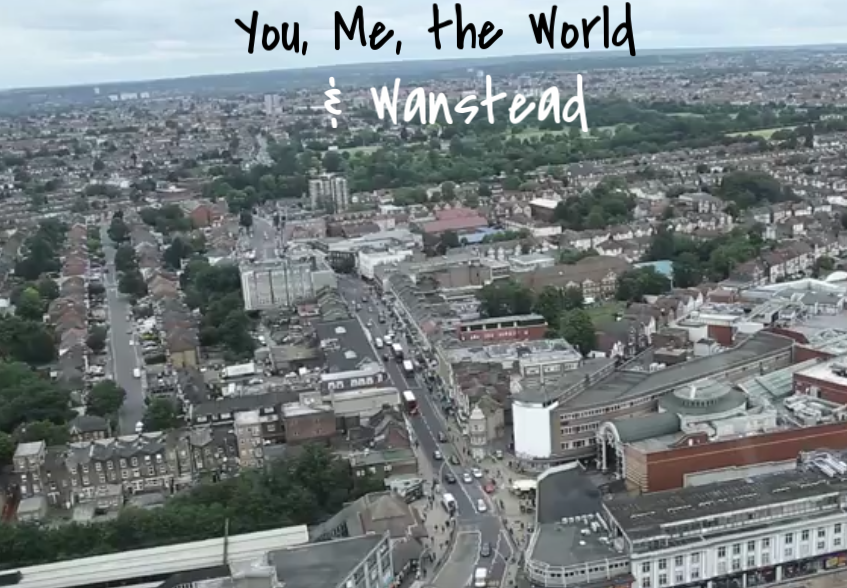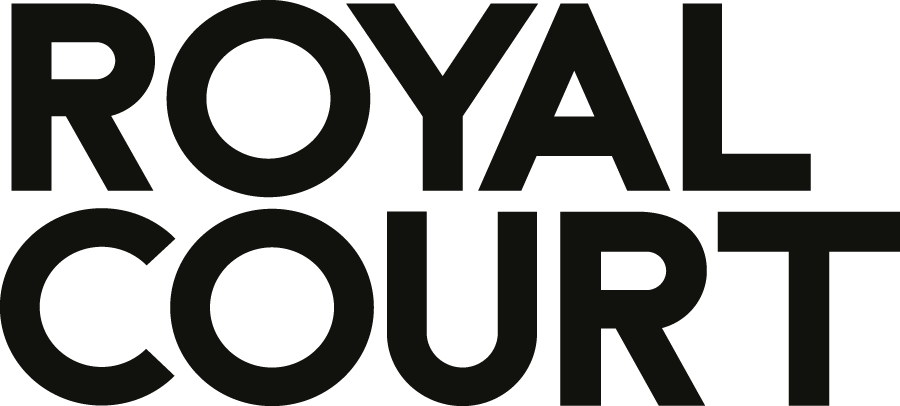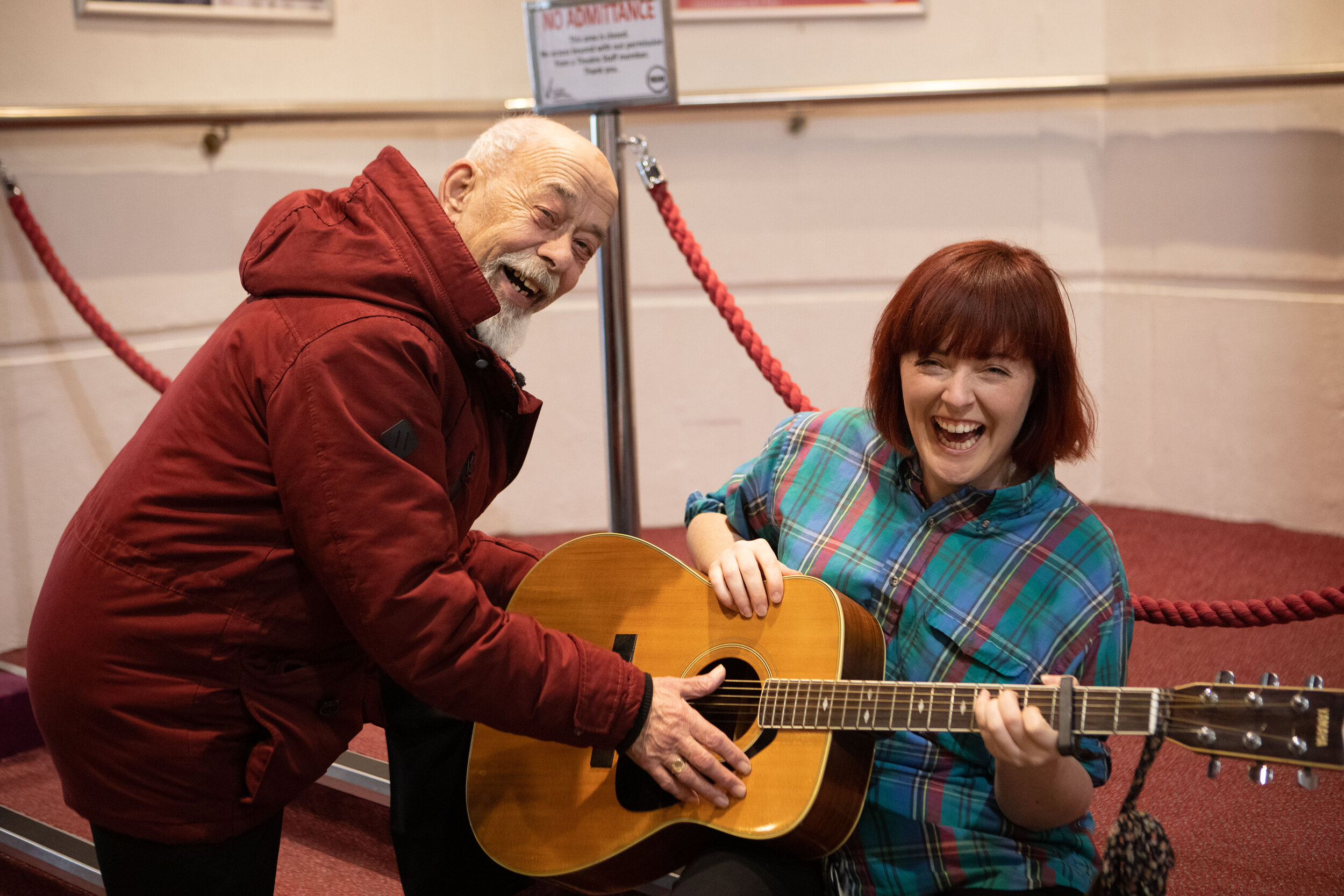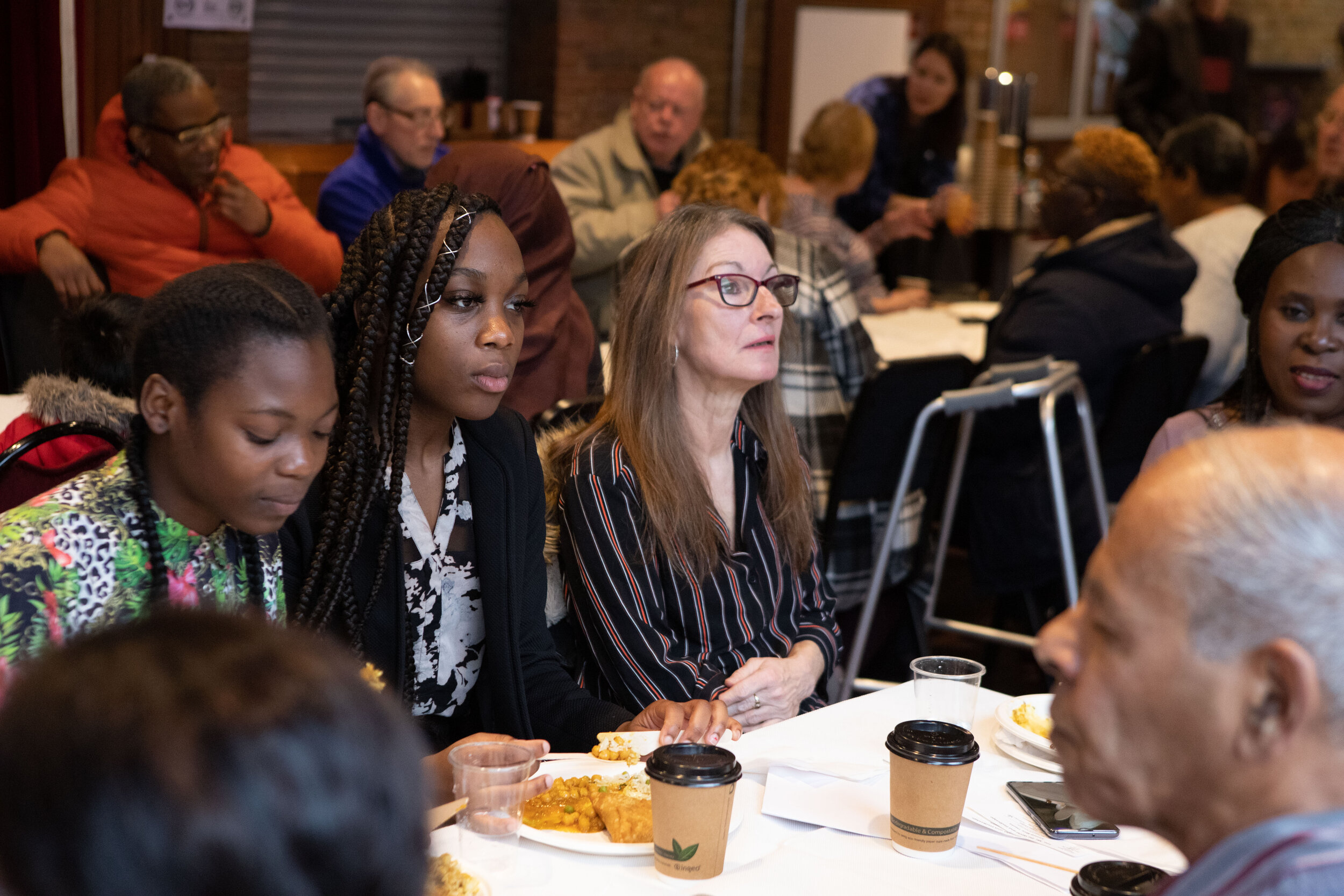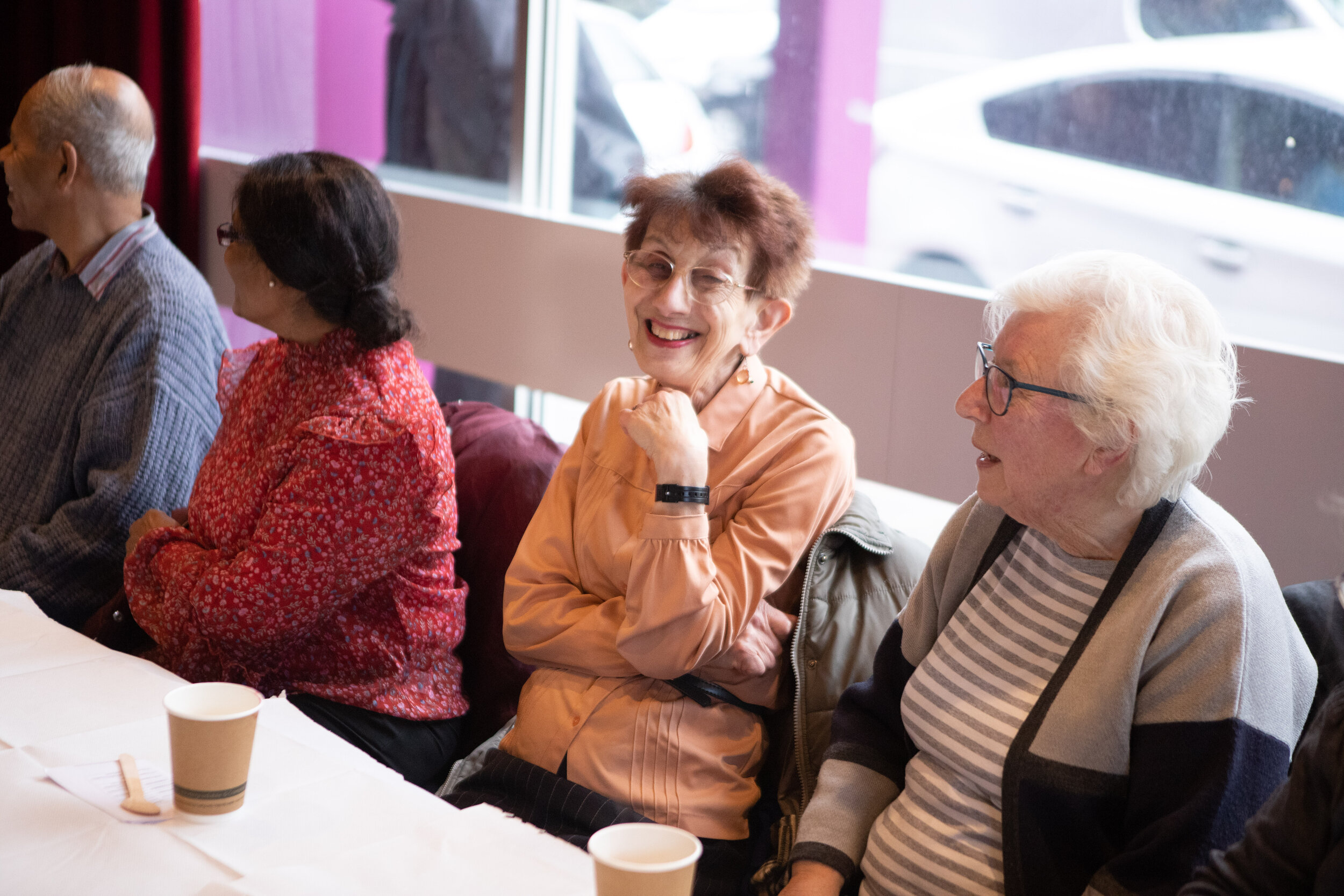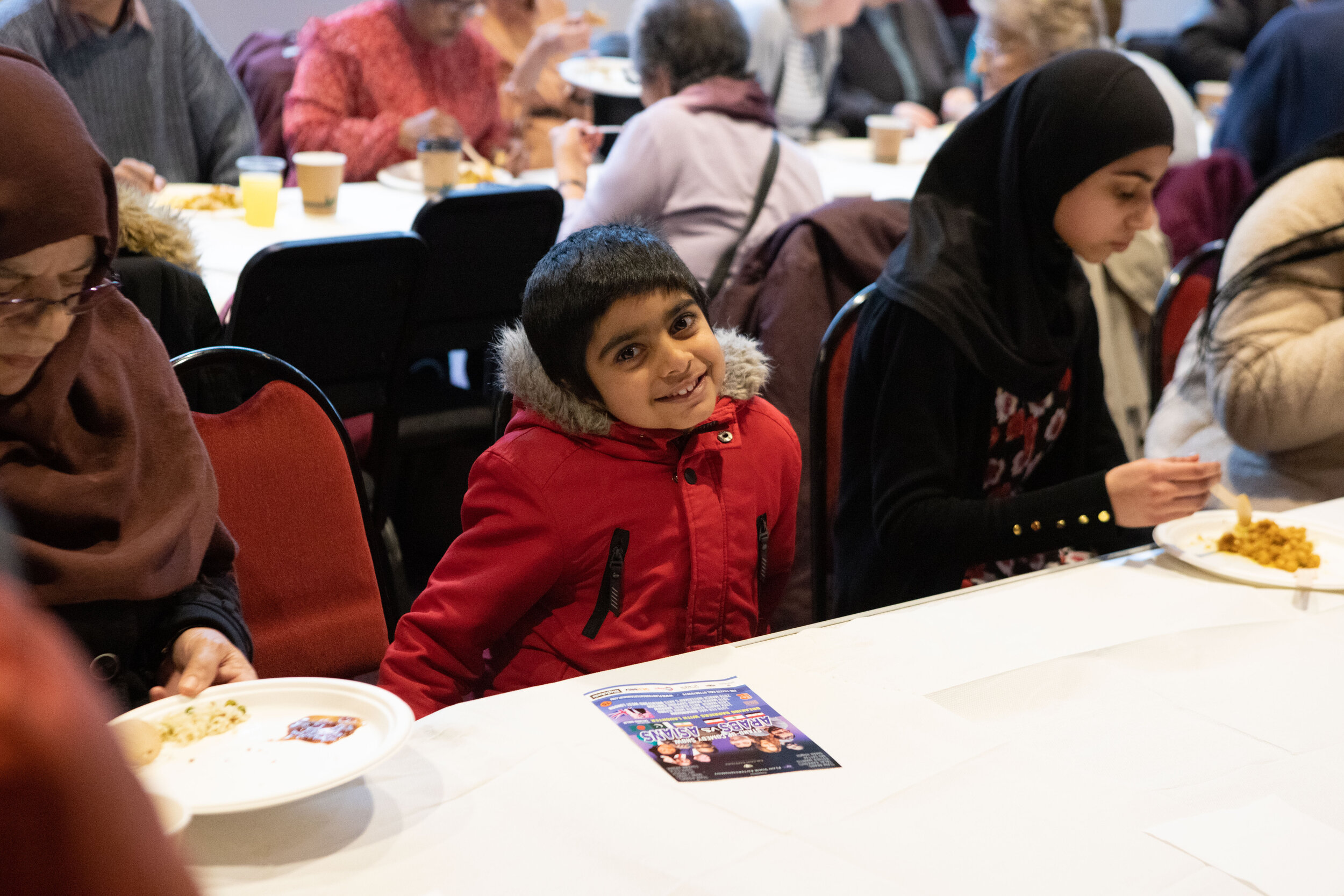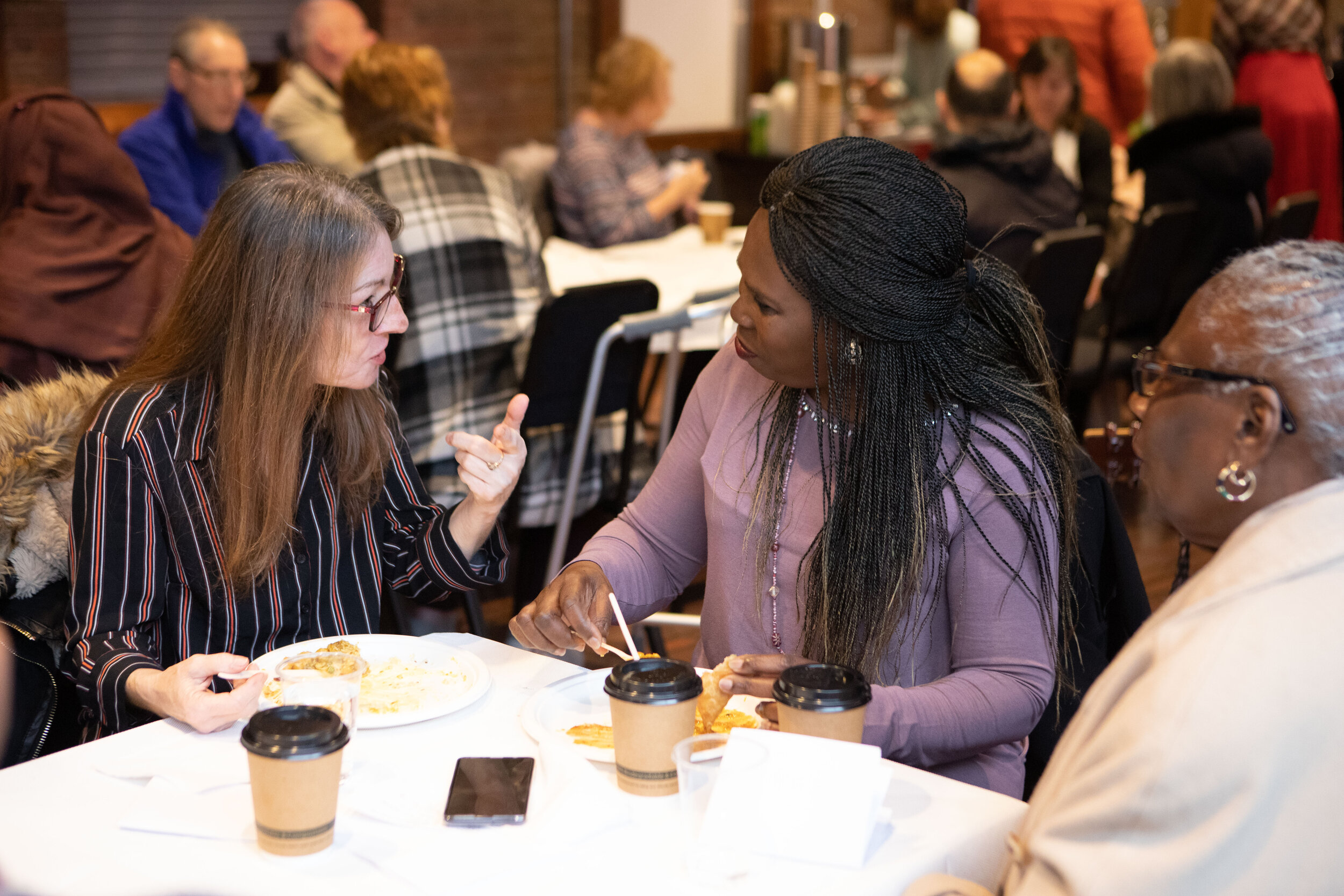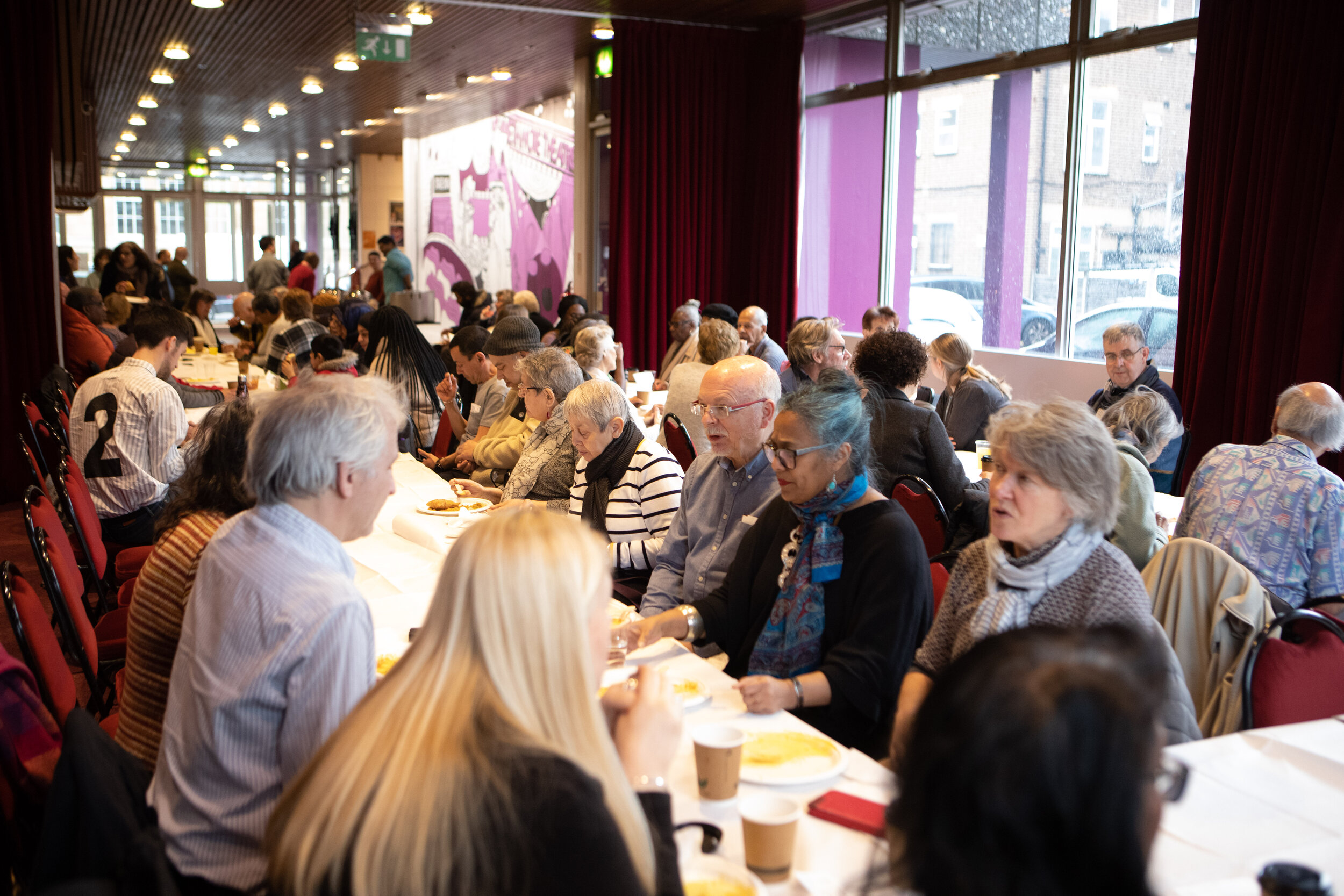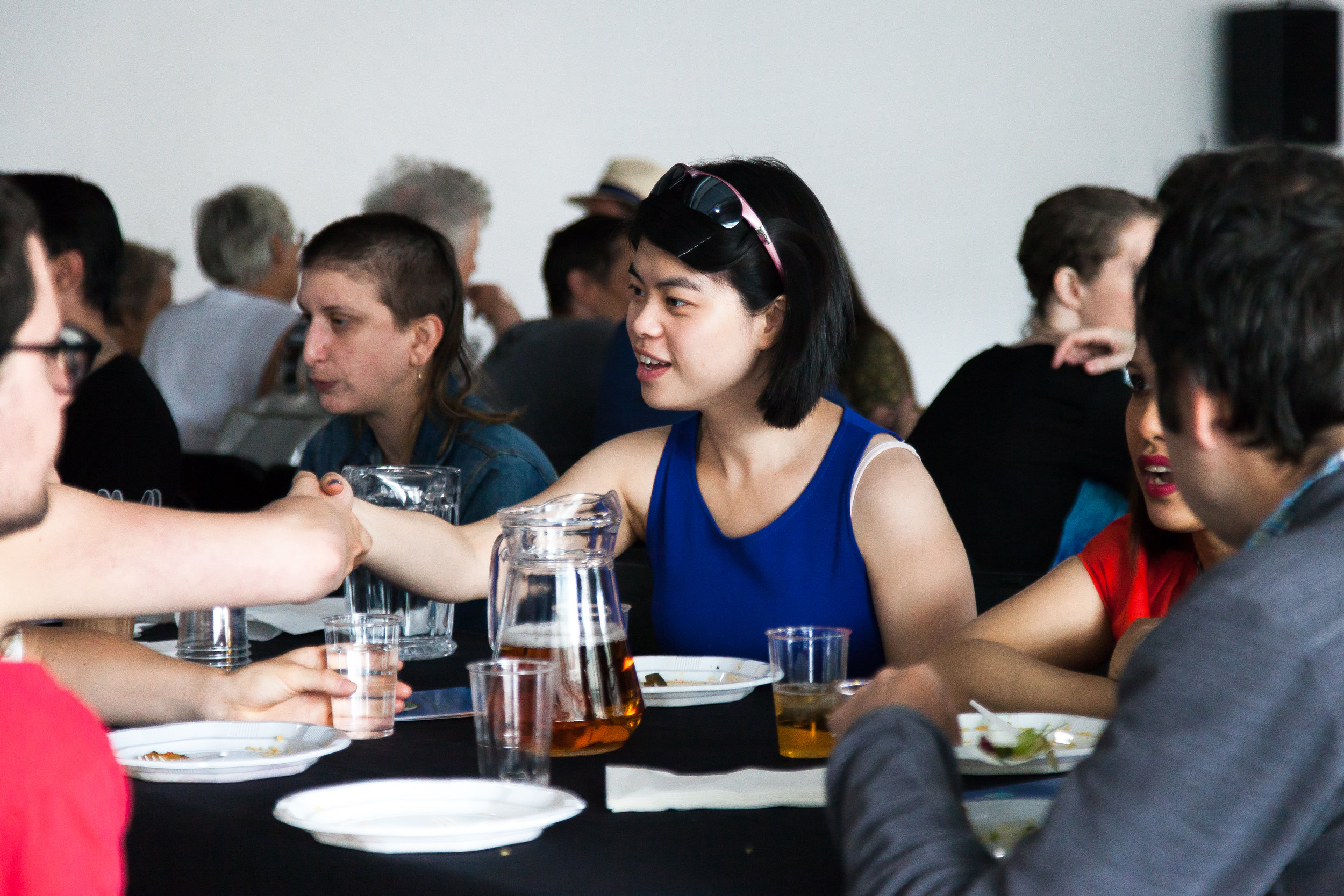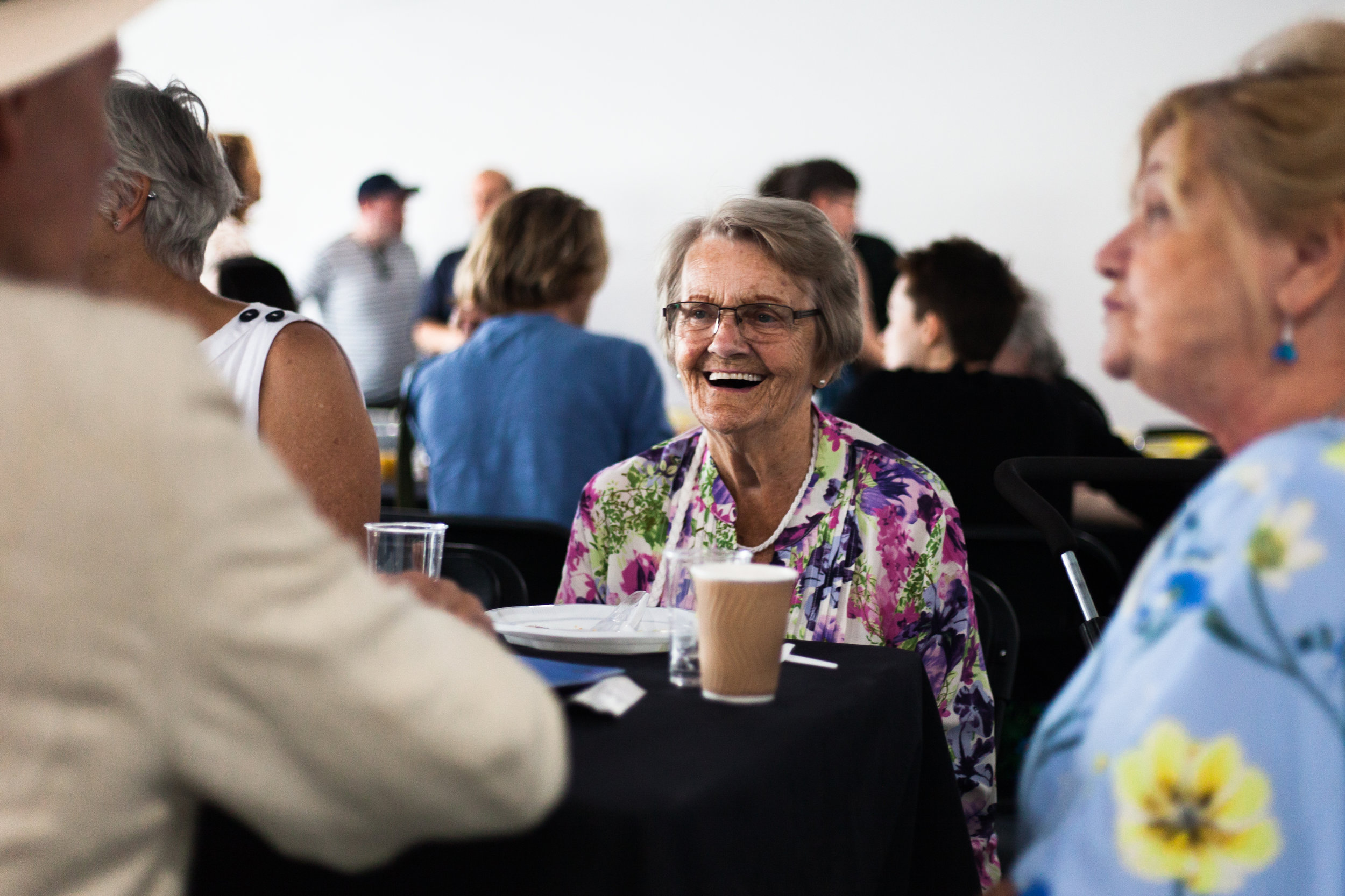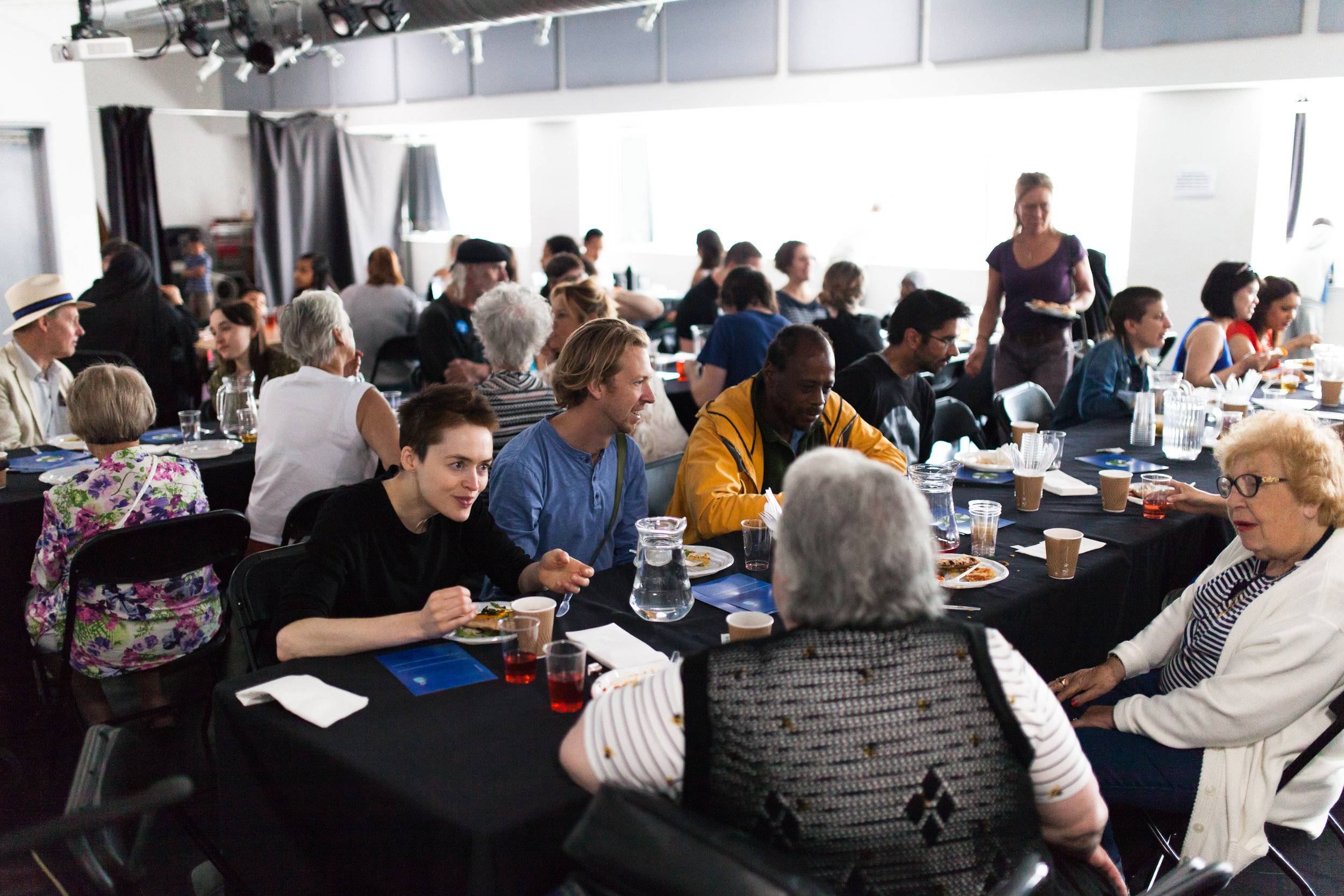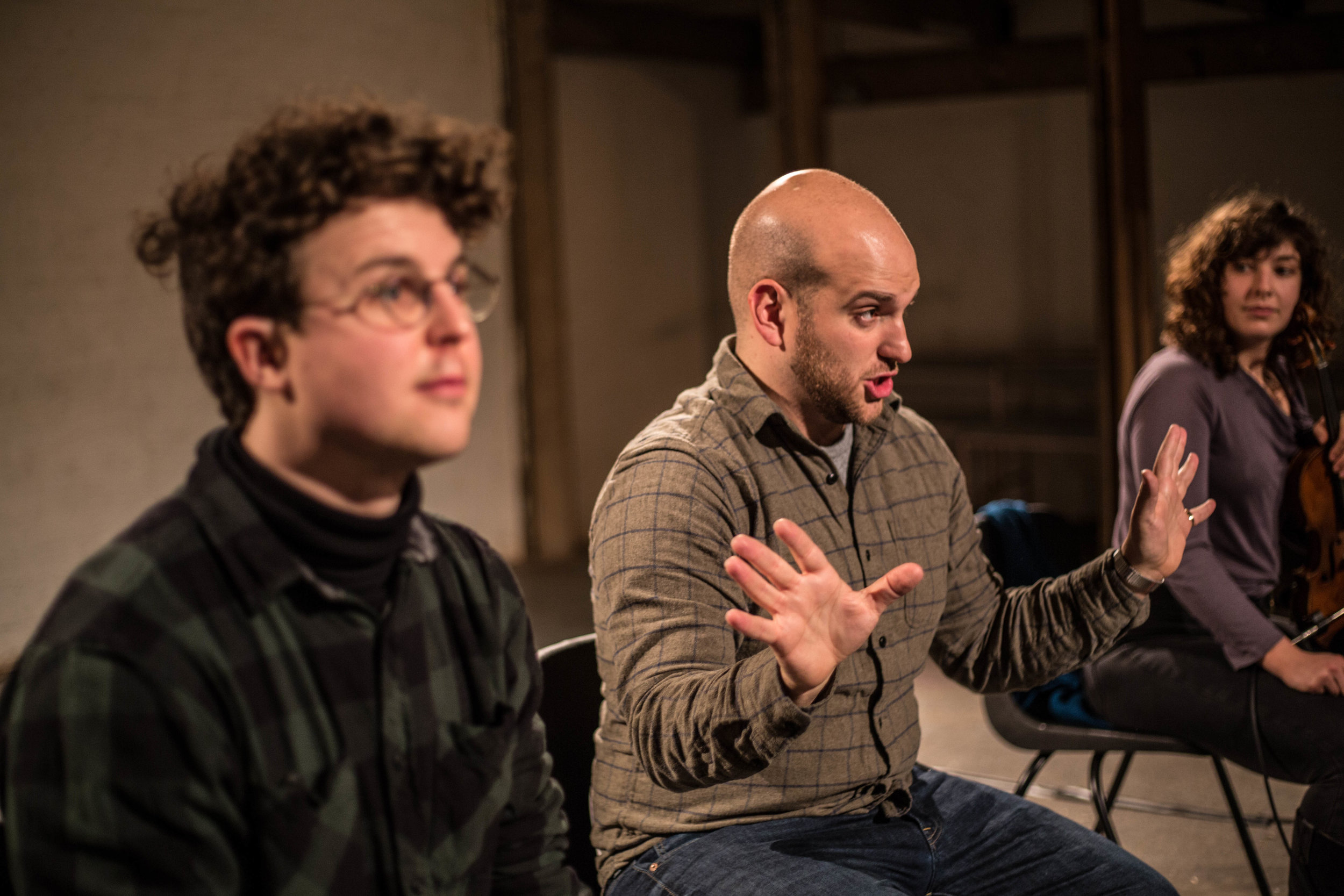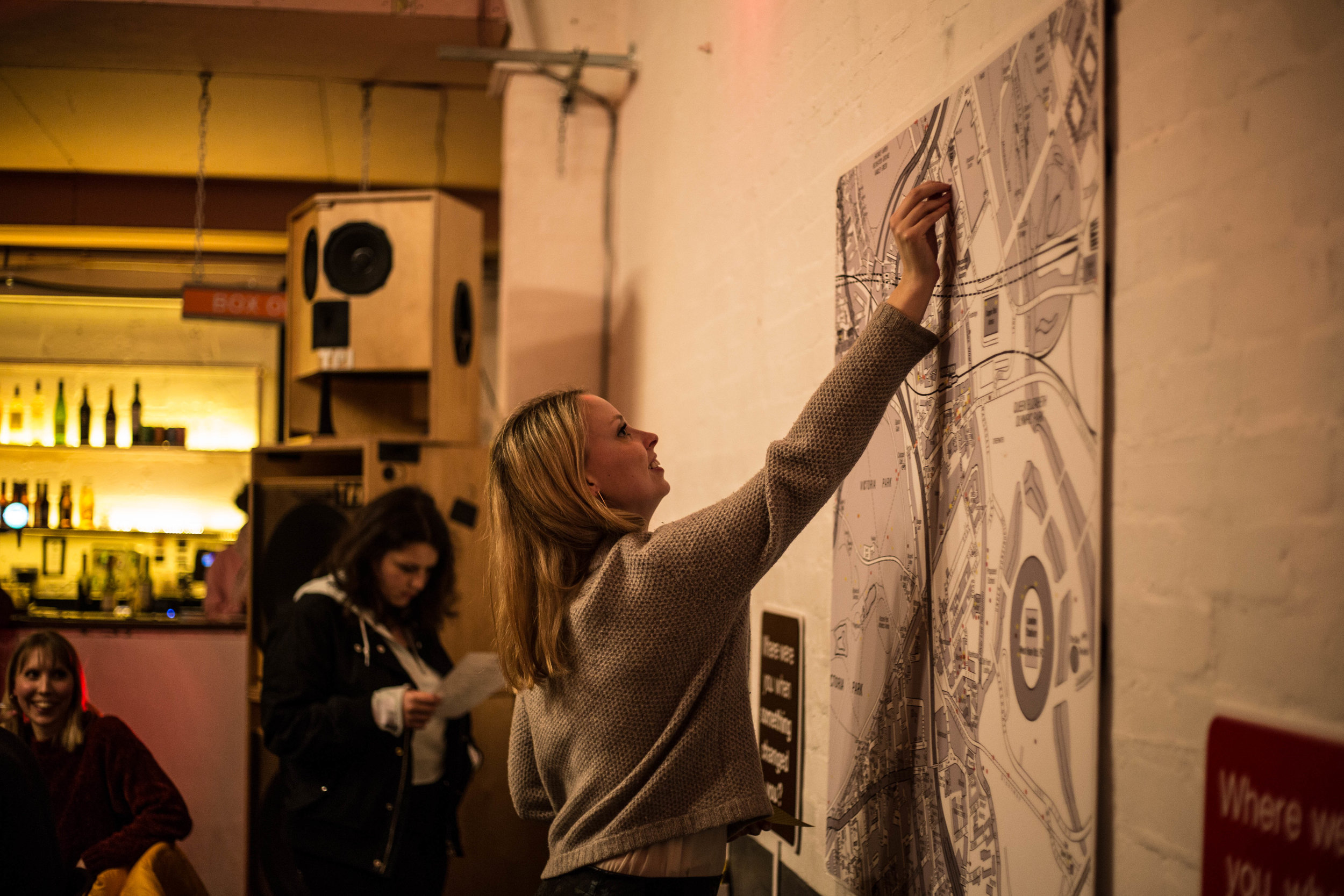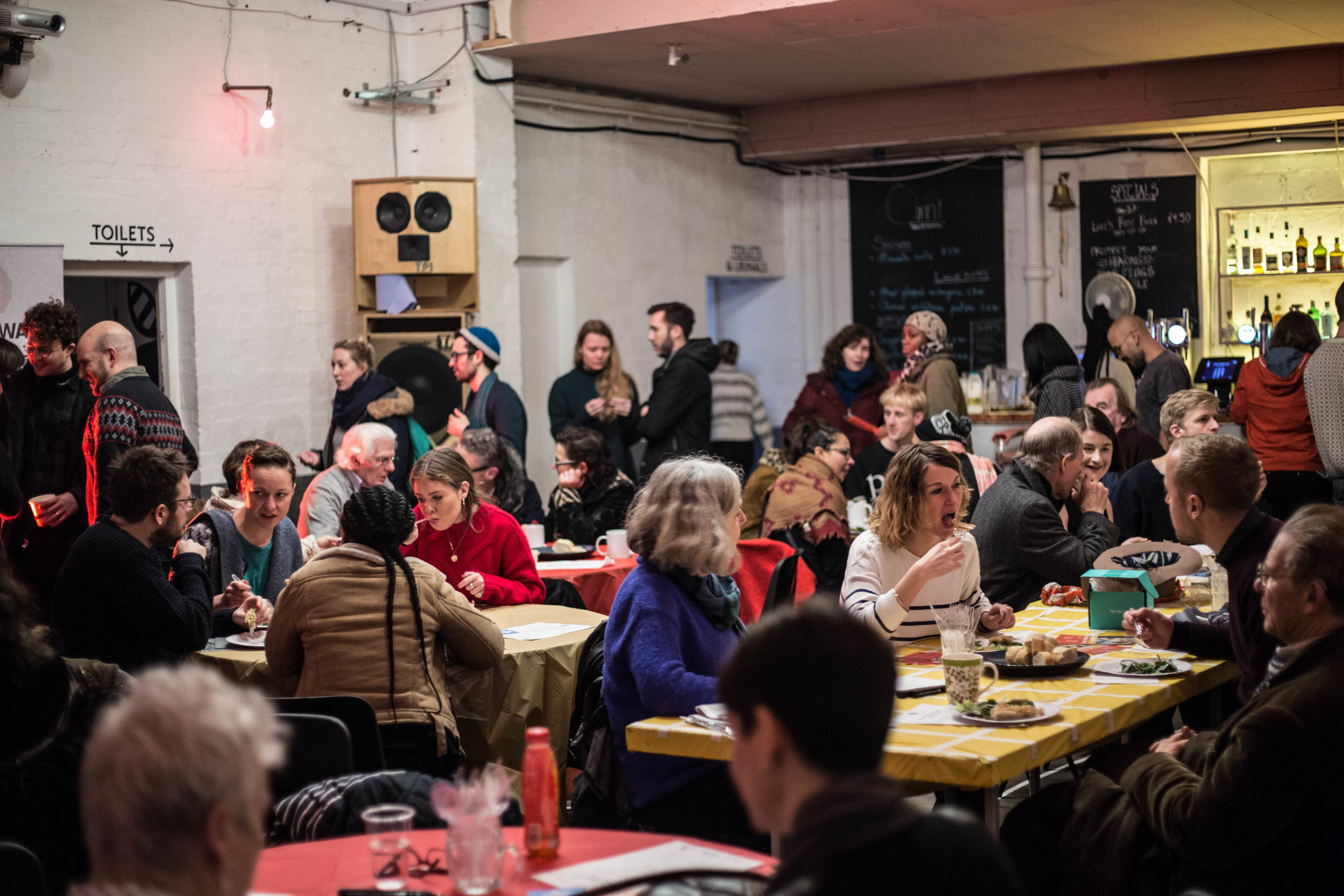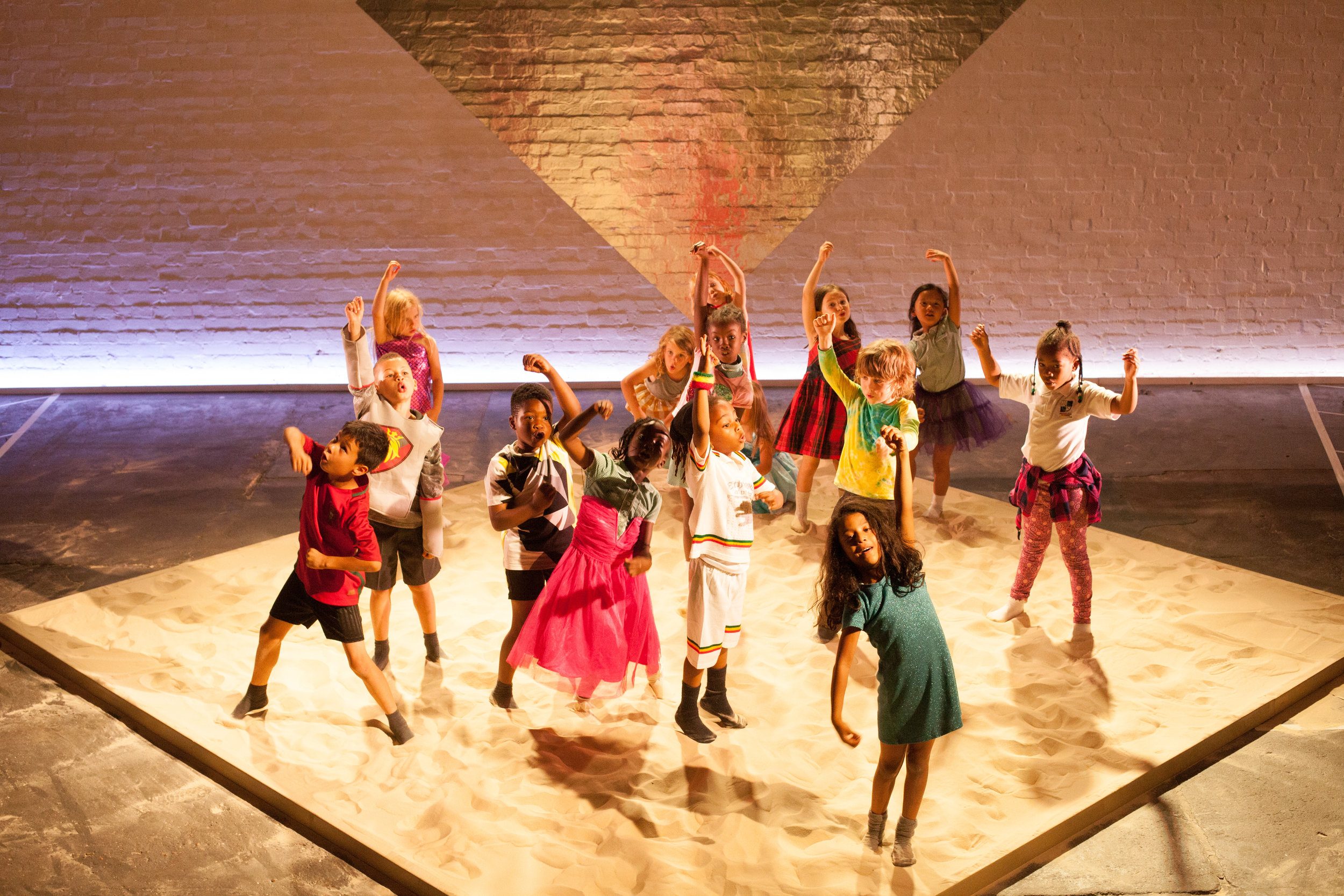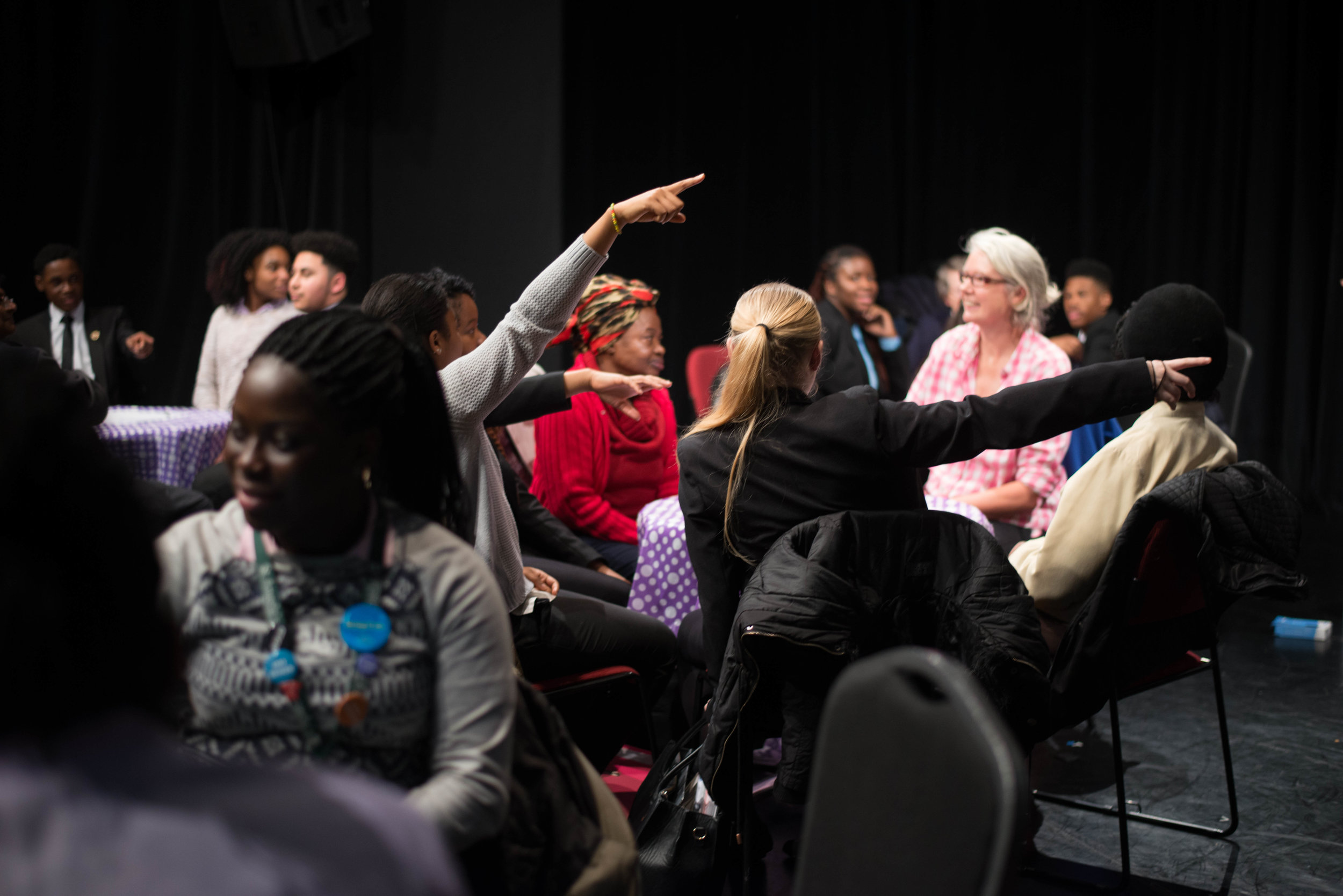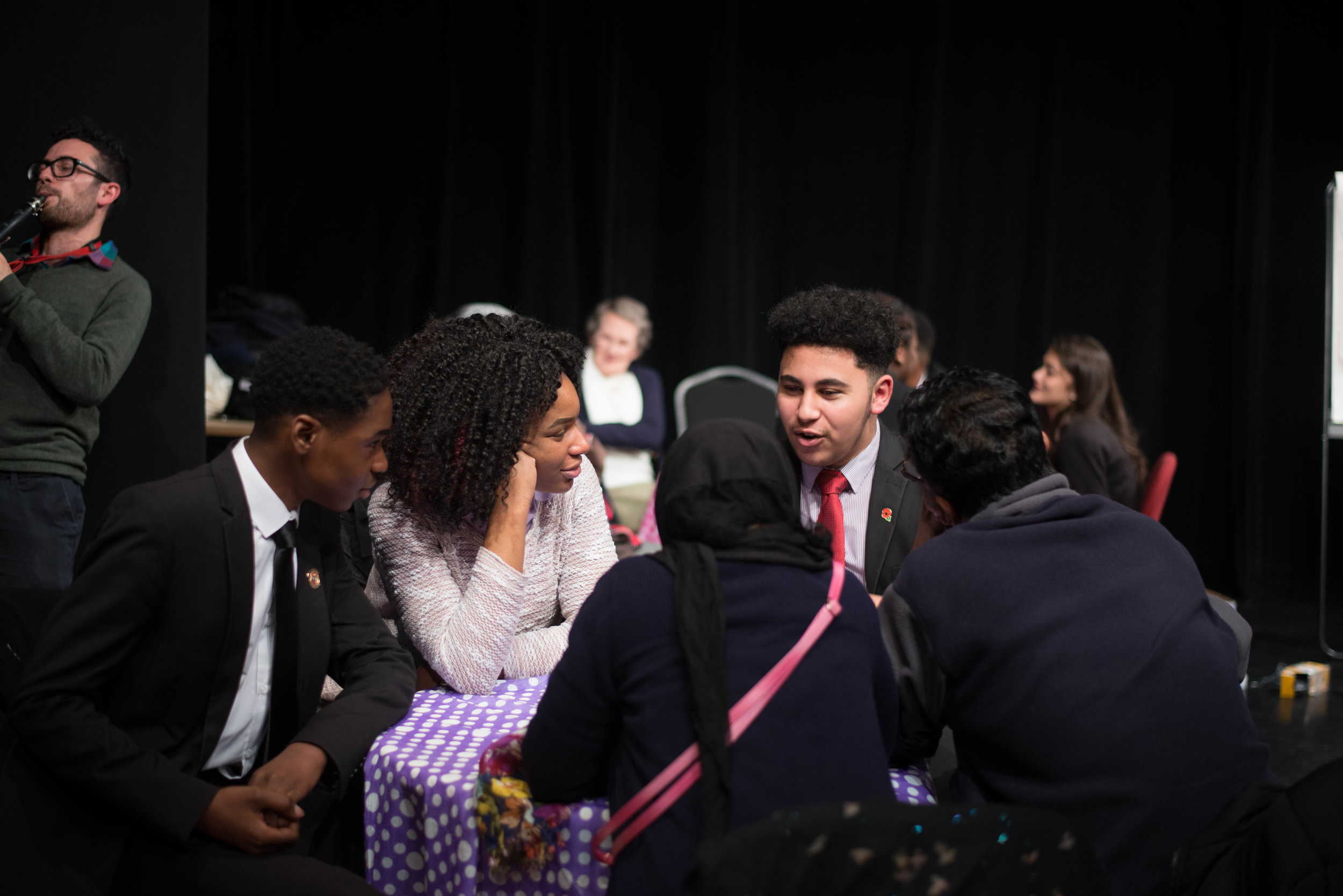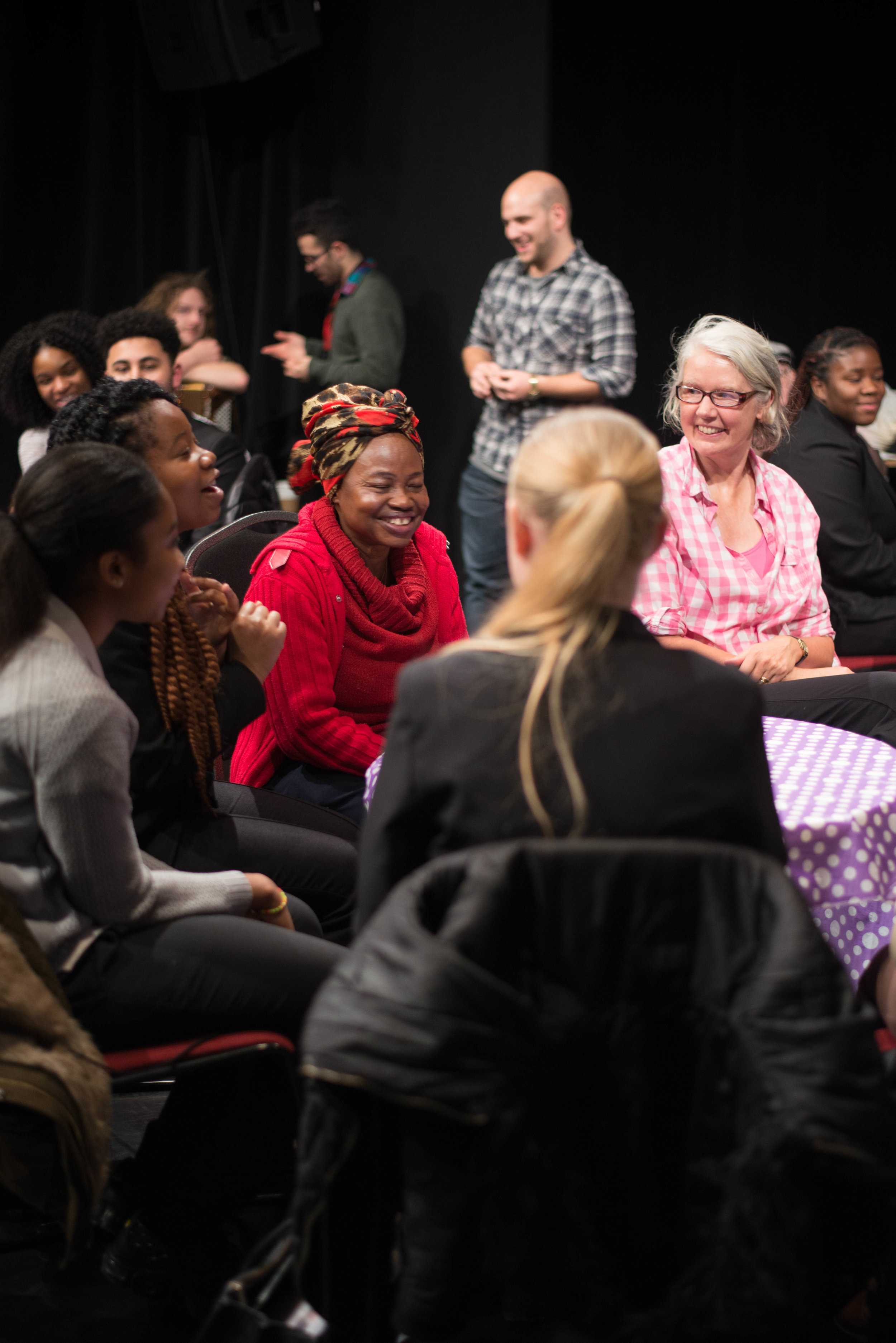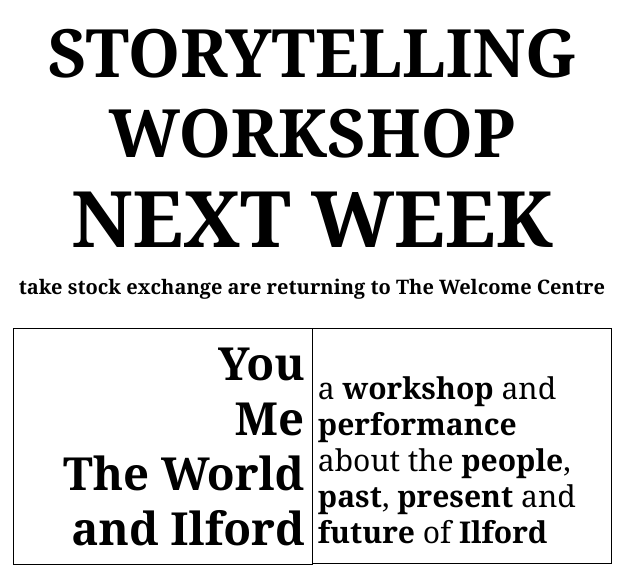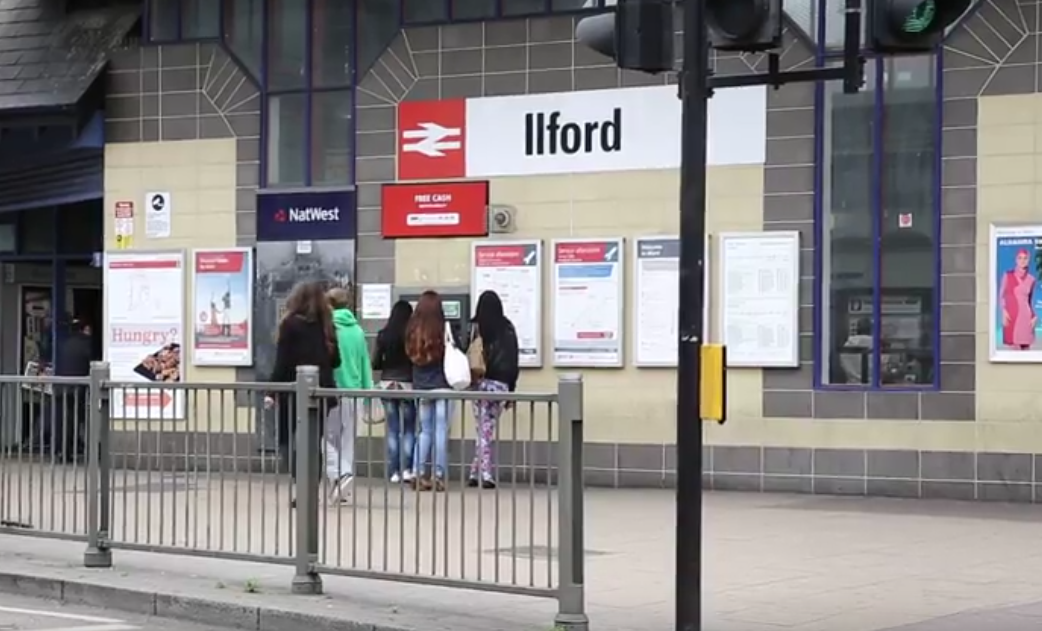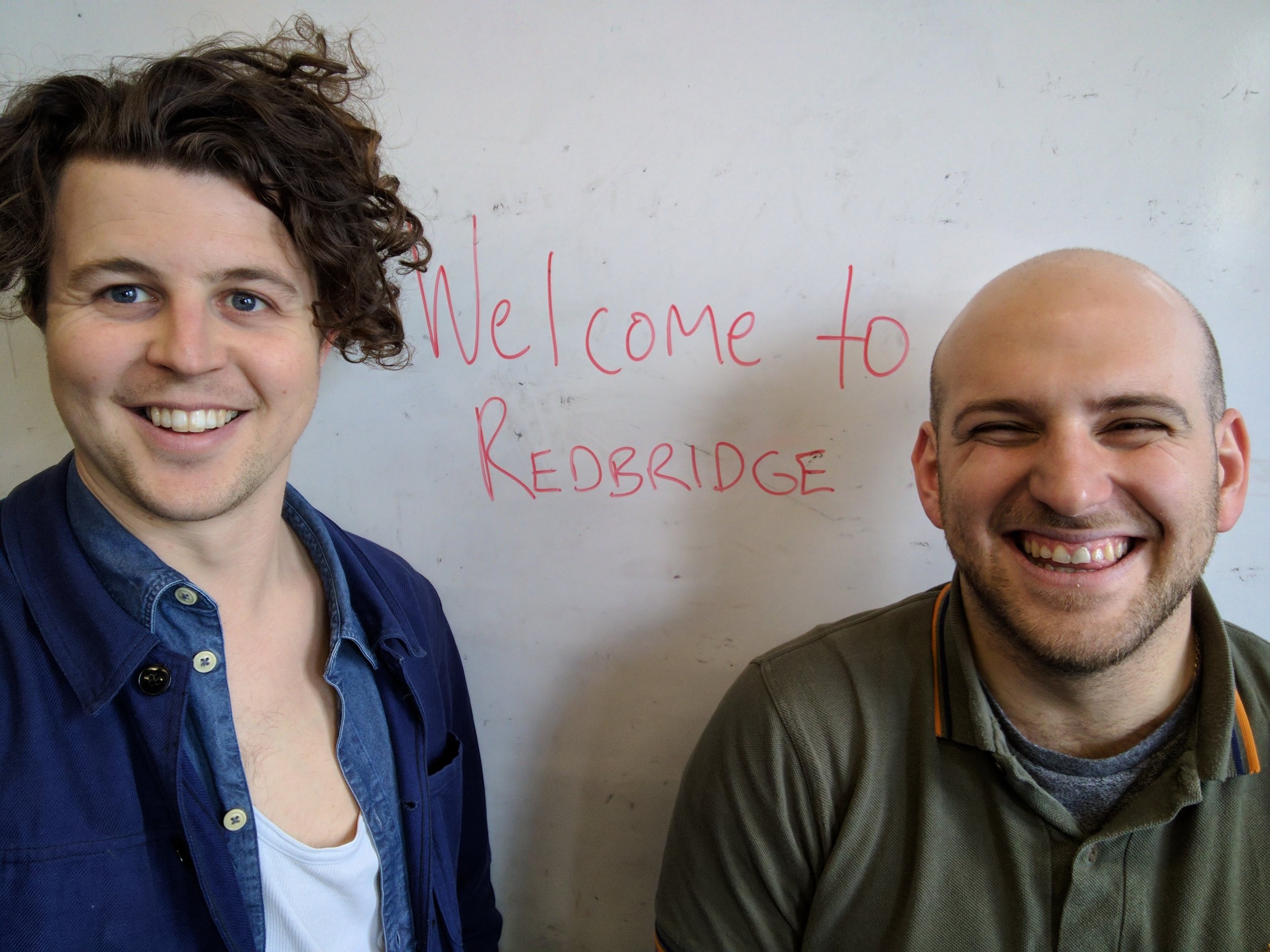PROJECTS
Machloket: a disagreement for a greater good
Machloket: a disagreement for a greater good is a community storytelling project created with Jewish communities groups across the UK to amplify marginalised voices, highlight and celebrate diversity and offer both a broad and intricate picture of what it means to be Jewish in the UK today.
The project is created by Jewish artists Nick Cassenbaum (take stock exchange Co-Artistic Director) and Tash Hyman and is being delivered by us take stock exchange, with support from The Royal Court Theatre (London) and Arts Council England. So far we’ve met with 30 different community groups, including over 200 people from all over England - from London to Manchester, from Bradford to Truro, and Liverpool to Norwich.
We are creating a podcast to share the incredible stories we’ve been gathering - you can listen to the first to episodes here. Each episode features a selection of groups and looks at themes like exclusion and community, memory and migration, ritual and legacy, and hope, belonging and joy.
Longer term, we aim to create a theatrical performance which will tour to community spaces across the country - watch this space…
You, Me, the World & This Moment
During the first half of 2022, we visited communities across East London, and asked people to talk about their experiences of the pandemic, and how they were looking forward to the future. We’re living through an extraordinary moment, one which people are experiencing in wildly different ways. This project is about making space to reflect on that and share our thoughts, ideas, stories and experiences with our neighbours.
In the summer we held our first live event since the pandemic began at Poplar Union. You can now hear the stories we told and some of the conversations we had throughout the project in two special podcasts. Listen here or wherever you get your podcasts - Spotify, Apple, Google and elsewhere!
The music throughout the project is by Anna Lowenstein and the podcast is produced by Penny Bell. You, Me, the World & This Moment is supported by Arts Council England, Poplar Union and Vision Redbridge.
Episode 1 - You, Me, the World & This Moment - powered by Happy Scribe
Hi there.
This is Olly from takestock exchange here.
What you're about to listen to isan edited recording of an event
that happened at the Poplar Unionthat formed a culmination of a project we
delivered over the first half of 2022,called 'You, Me, the World & This Moment'.
The project consisted of us visiting lots
of different community groupsfrom across East London and asking people
to talk about their experiencesof the pandemic, how they were feeling now
in this moment and how they werelooking forward to the future.
And what you're about to hear is sixstories told by me and Nick Cassenbaum
with musical accompanimentfrom Anna Lowenstein that we created as
a result of those discussions and also some of the people who are present
at the event at Poplar Uniondiscussing these stories, enjoy.
Okay everyone, so in a moment,we are going to tell you
six stories in two sets of three,and these six stories are about what
happened when we went to different community groups 'all over East London
and asked the people therethe same four questions.
Okay, we're going to tellour first story now.
And this story is called 'One Rule for Oneand Then Another rule for Another'.
This is our honorary member.
The phrase is shouted across the room.
We are at an all male social club,at their weekly gathering.
The meeting takes place in a small
community room, nestled at the heart of a housing estate somewhere in Poplar.
The members are making each other cups
of tea and chatting about a few different things.
One, sitting proudly in his wheelchair,
wearing a West Ham shirt,seems to bring every avenue
of conversation back to his beloved teamand lets each person who walks in hear
the latest chant he'spicked up from the terraces.
Some of the members thought today's
meeting was going to be about prostate cancer.
No, Nick and I have to explain a number
of times to people as they come into the room.
That's not what we'rehere to talk about today.
There's a look of reliefon people's faces when we do.
And this is especially true
of the honorary member who's just walked in, who, as it happens, is a woman,
hence her membership of this all malesocial club being honorary, I guess.
So what usually happens at your meetings?Says Olly.
The group's facilitator, an older man,
bright faced, big moustache,explains that Sometimes we just talk,
sometimes we play music,sometimes we play games.
Not kiss chase, says the honorarymember There's laughter.
So what's in your mind today?
Says Olly.
Sex, says the honorary member.
A man with a very loud,
kind of high pitched voice cackles, cheers and bangs the table.
No, not really, she says.
I've just come from work mode
and I'm a bit stressed, been on the new tills all morning.
She wears a Marks and Spencer's workersuniform, hair pulled back into a ponytail,
black polo neck shirt with the M&S logo,black trousers.
Her black face mask was hanging from one ear as she came into the room,
but she's since taken it offand carefully placed it on a piece
of tissue paper that'son the table next to her.
Nick got his top from M&S, Olly says.
Yeah, me too, she says,pointing at the logo on her uniform.
Everyone laughs again.
When this pandemic started,
I was quite annoyed, says the man with the high pitched voice.
His voice is very loud and there'ssomething about it that makes it sound
like he's either delighted oroutraged at everything he's saying.
Because when I found out about all
the government saying this, that this, that, this, and yet they was doing
differently totallyfrom what we were doing.
And to me, it's just annoying.
I just feel sorry for all thosepeople who lost their lives.
It's just ridiculous.It really is.
Yeah, I've lost a couple
of members of family, says the honorary member and then my son
got it and he has asthma and then again,he was on his own and I couldn't go down
there or anything, you know, to help him out and that.
The man who runs the group tells us about
his sister, who's got leukaemiaand has been isolating for two years.
You get to our age, he says,and it could be around the corner.
That's why we have a laughand a joke in here.
You never know, do you?
This is the place where we escape.
The rest of the room shouts, yes!
And there's more loud, distinctive laughter.
The man with the delighted,
outraged voice says, there are vulnerable people who live
alone, how can we helppeople we don't know?
And those people who don't wear masks
to look after other people,what does that say about people?
The honorary member takes over.
Do you remember when COVID started
and it was mandatory to wear masks wherever you went right?
And at the time, some of us were standing on the doors to make sure
people and that,come in and had their masks on.
Where my story is we're right across
the way from the Walkie Talkie building,right in the centre of the office people.
You'd be surprised howmany rude people there is.
One of them even told my colleague to
F off off just for askinghim to wear a mask.
One evening, I was goingto do the late shift.
I politely asked a womanto put one back on.
She really gave attitude.
It really pissed me off.
Takes a lot to get me angry.
Then about 15 minutes later,I see her coming my way.
So I like to turn my back slightly,so I couldn't see her.
But you know what?
She come up to me and apologised.
She said, I'm sorry for the way I spoke
and I thought, Why can'tmore people be like that?
Do you know what I mean?
It does make you think, says the man with a delighted, outraged voice.
What does it make you think?
There can't be one rule for one,then another rule for another.
But clearly there is.
It shouldn't be like that.
The man who runs the group has been
sitting, listening, twitching, grunting agreement at different moments.
But now he jumps in.
It's all about the social contract,he states emphatically the softness
of his Salford accent giving wayto something more declarative.
We all live in a society,
but there is this idea that you asan individual can do as you please.
But this virus don't play that game.
Your actions have consequences.
So even if you think you haven't got it,you might be spreading it to someone else.
So what you do impactson what other people do.
It's like the politicians.
They can't say, you must do this, butactually I'm going to do something else.
People say it's my life, I'll do what I please.
But it doesn't work like that.
You can't go around shooting people,you can't go around libelling people,
you can't run into a cinema and shoutFire because it's your right.
Everything you do has a limit.
And people, he says,should look after each other.
Okay, this next story is called'That felt good, being a rebel'.
People who lost their job becauseof the pandemic are now struggling.
Food banks, shops closing, who would havethought Debenhams would have shut down?
The high street is getting so empty.
We're on a zoom.
This is a group of writers that usuallymeet in person at a library in Redbridge.
We've met them many times before,but never on zoom.
But since the beginning of the pandemic,they've only met online.
The woman who runs the group is talking.
Her face is framed with thick blackcurly hair and dark rimmed glasses.
She sits in front of a stark white wall,quite still, quite held.
But her face is always somewherebetween a half smile and a big grin.
I think it's changed the world.
I think people have also worked out howimportant contact is, human contact,
the importance of touch,seeing people face to face.
I've been in lonely placesbefore, I've been isolated.
Essentially, we are group animals.
We're not meant to live in isolationand zoom and meeting people.
It's not the same as actually givingsomeone a hug, unless you break the rules.
Did you ever break the rules?
Yes, she answers without leaving a beat.
Seeing my kids, my older daughterhad been living in America.
As soon as I saw her,of course I gave her a hug.
It's horrible otherwise.
It's the turn of a womanwho has her camera off.
All we can see is a black box with her
name on it being highlightedby a green line.
As she speaks, she takes a moment to think and then,
the pandemic brought out a lot of thingsto the surface that have been bubbling
along for a long time which everyone hasbeen too busy or not bothered about.
Lack of support and funding to the NHS
sustainability and environmental issues,the fact there are huge sections
of the society unfairly treated and people's outrage to that.
I think we've been through a long periodof time where it's been all me, me,
my little family unit, and notreally caring who lives next door.
And I think people have started to see
that it's more important to look outside of your own front door and interact.
Olly probes a little further,
asking about how these things have affected her personally,
the NHS, right at the beginning,there was the whole Rainbow Walks thing.
I don't know if you remember?
My kids drew their own to show theirsupport and they noticed there weren't as
many windows as they expected,filled with rainbows.
We talked about it as we were walking
around, trying to come up with reasons as to why that might be.
For them, it was the first time they'd been a part of something that goes
beyond their little school life, home life and it was a disappointment
for them to see that not as manypeople cared as much as they did.
Because, you know, kids have a reallygood sense of right and wrong.
And then the Black Lives Matter things.
For me, it was this sense of horrorthat we were in that situation.
You have to be careful what you put
on children's shoulders, but it did come up in conversation.
They definitely recognise that things
aren't working, but it's how you fixthose things, is where they felt stumped.
The final woman seems excited to speak.
She's got this little bob of grey hair
and she offers affirmations while otherpeople are speaking in the form of oombs.
She's got this big smile across her face
and it's been therethe whole conversation.
Her camera sits below her chin and it's
aimed up at her face,which makes her smile seem even bigger.
On breaking the rules, she says,and immediately giggles.
One of the times we were allowed to meet,we had a picnic in my garden.
My daughter came with my grandchildren
and I got chairs and we tookfood downstairs and everything.
And my grandson said he needed to go
to the toilet and I came up with himand we had a cuddle.
I said to him, you don't mind, do you?
Let's have a cuddle, darling.
I haven't seen you for monthsand we just had a little cuddle.
He jumped on my bed and wegrabbed each other and ugh...
for goodness' sake.
She appears to well up a littleand then regains her composure.
And it was the only timewe'd broken a rule.
That was it.
But that was nice, you know,being a, a, a rebel.
Okay, so this is our last story
from part one and we've calledthis story 'I think that will do'.
We are in a community centre on the borderof Islington and the City of London.
We are with a group of women who meetregularly to talk to one another,
listen to one another and have lunch with one another.
The room sits in a low, cool light.
On one side, large sliding doors reveal
a vegetable garden outside,abundant well maintained.
The woman who runs the group, who works at the community centre,
speaks with a soft Scottish Accent I rana food bank from day one of the pandemic
and we watched peoplequeue and we had no food.
Seeing people financially struggle,I've seen people that were so embarrassed
that they were in a situation wherethey had to come to get food.
I know of people where,
people who are working, who are watchingwhat they buy to eat, who are struggling.
For example, my daughter,she's the breadwinner.
She's on a good wage, but with childcare,
they got a mortgage justbefore the pandemic.
I'm helping her out with food,so that has an impact on my finances.
And she's proud,but they haven't got it nearly as bad as
the people I work with on a daily basis,people I'm in awe of.
I saw this bizarre thing this morningwhere they were teaching how to cook
a cheap meal quickly so you don't haveto use as much electricity or gas.
And I thought, My God,is this what it's going to be like?
Dealing with people who were frightened
and scared because they were angry,they were in a situation.
I found that dealing with them
with kindness, kind kind kindness, just wins over everything.
I think I'm a nicer person now.
I get less stressed about thingsI don't want to see.
I've changed the way I look at people.
I've seen people that I thought were not
very nice and realised that for every person's behaviour, there's a reason.
And that's changed me.
When we were first doing the food bank,
we'd have someone that would comein who'd be really degrading.
I want that, that that, theywould not say please or thankyou.
But we kept going and within about six
months, she was cracking jokes with us,cuddling us, bringing us gifts.
We just kept being kind.
And she, pauses for a moment,
goes to start speaking again,then says, and I think that'll do.
It feels like the whole room takes anintake of breath, holds it for a moment.
There was an emptiness.
All the buildings were empty.
Another woman says, speaking softly,and people go into themselves.
As soon as you talk about it,you can sort it out and be happy,
says a woman whose voice is soft,but whose accents makes it zing into
the air, and help each other, everybody needs help, you know.
There's my friend,
I recently phoned her and she couldn'trecognise my voice, you know.
I was worried, I said, what's going on?
We used to go to the same schooltogether, so I went to see her.
When I saw her, I was so shocked.
She can't remember things.
They often get a carer to look after her.
All her children have grown up.
The husband left her.
So I said, what's going on?
What can I do for you?
And when I came back home,she rang me to say thankyou for coming.
I said, don't worry, I'm therefor you if you need any help.
Don't worry.
You do what you can for people,because then when you look back...
It's been such a profound thing.
Another woman energeticallyannounces, it has altered me.
It has made me it sounds cliched,
really, but it sort of makes yourealise, you know, what really matters.
And actually, what matters when it comesdown to it, is your family, your friends,
your community, and caring for eachother and being there for each other.
And actually, that's quite simple.
It's quite hard to put into words a lotof this, and I feel like we need time.
There are great lessons to learn from what
has happened, says another womanspeaking clearly and slowly.
I feel that if we learn,the future will be good.
Thanks for that, everybody.
So that's the end of part one.
We've heard three stories.
What we'd like to do now,before we move on to the next section,
is to hear about what peoplehave been talking about.
When we do this work,
when we do these stories, we run these workshops, we do something like this.
We're trying to build a conversation
and build people's awareness of the conversation.
So we'd love to hear people justto report back on any
of the conversations that theyhad about any of the three.
All of the stories contained almost word
for word conversations that me and my friends have had.
And it brought home those connections
to me that everybody was in the same boat,everybody had the same experience,
everybody was lonely,everybody couldn't hug somebody.
And we were talking about the
disconnect between howcareful people were and how importantly
they took their role and whatthe government were doing.
And that anger that is still very,
very present for a lot of people,because the story,
like the grandmother who couldn't hugher child or did do it, in the end.
Everyone was terrified trying to do the
right thing, and the people who madethe rules weren't doing that.
Thank you.And I think tying into that,
I don't know if other people did,but it actually made me feel very
emotional because there's so muchthat we haven't worked through.
And I know throughout history,
after the war, we just sort of carried on and that keep coming, carry on.
But there's so much I could feel it
in other people when they were talking in the group.
There's so much emotionally that we're
holding on to that we're just not having the opportunity to work through.
It's almost like,
it's the draw a line under itand just go on to the next thing.
And it made me remember things that I'd
actually forgotten how I felt two years ago, that I'd actually kind of pushed
to the back of my mind and made me feel very emotional as well.
We spoke about the one rule for us
and one rule for themand the whole party gate thing.
We shared some experience with someof the things that we went through.
And even though that sort of bothered us,
that they're not obeying the rules,I think we were far, far angrier at things
they've done since and things notrelated to that, to be honest with you.
We're talking about in the middle
of the pandemic it felt like we were goingto come at the end
of it we were going to be,we'd have a kind of better world but it
feels like we've sort of moved awayfrom that again, if anything it feels...
We had an opportunityand we've missed it and we've moved away
from that and we seem to have revertedback to almost a type, really.
And to a certain extent it's the
way we've been led as a country orwhatever, there was an opportunity
for us, for the world to change,but I think we've missed it.
I think what it is,it's until you get to something like this
and you hear other people sayingwhat it is, but slightly different.
And when everyone thinks,
you're giving me thinking, oh, yeah, that affected me in this way,
or it affected my friend in that way,that's where you get something like this,
you suddenly realise howmuch it has affected people.
And I think it's just the way out to me,
the way that people have been brought upand all, it's like what you say, it's like
the way I would put my parents with my dadis men are not supposed to cry,
they can't show this,but it's not until you get shown it like
this and you suddenlyrealise, why can't I?
And why can't I do this?
To me, that's what it seems to me.
Kind of building on both those things.
It's such a beautiful space you've created
to reflect on this time that we've all been through.
I've also felt quite emotional actually thinking about it again.
But as a house, I live communally and wespoke about it a lot at the time.
But then when things started opening up.
I also was part of
the same thoughts of wanting to change and we got this opportunity and then
pubs and whatever opened up and I justwent back like the rest of the country
and forgot about all thoseconversations we were having before.
So it's been really nice to think aboutthose things and we had been talking
a little bit aboutthe things that you were saying.
About the things that you feel likehave stayed with us a little bit.
Fragment of the things
that we felt way more during the pandemicwith not being able to interact
with people and taking thingsfor granted as well
we've kind of gone back to where we werebefore but little parts of it have stuck
with usand that's some sort of constellation
in that, that we have takensomething away from it.
We appreciate hanging out with peoplemore than we have before the pandemic.
We appreciate even being able to visit
restaurant for a mealand we didn't necessarily appreciate
that kind of stuff before becauseit was never taken away from us.
So it's not like all is lost we,
have taken some of it, we should have taken way more.
But, it hasn't all been in vain.
It strikes me now that we've almost been
invited to return to the groups that we were in before
I mean you've got strikes now which leadsto a division, we have the war in Ukraine
so we have our enemies againand in every kind of situation we're
reverting to type and like our friend hereI only hope that we remember that we do
have the capacity to be like that,to be community minded, to be aware
of other people's feelings and situationsI feel that society has pushing us back
into our little groups so we can carry on as before despising
the people we despised and fightingthe people we fought then.
Following up on that and following up onthe name of one of your stories,
is that in that environment where we areall going back to the structural problems
we had before and even magnifying themthat this feels like an act of rebellion
actually that sharing these storieswith people you don't know from different
places feels like an importantact of rebellion.
And I think carrying on from what you said
I think that a lot of people are nowlooking outside of the given structures
for political or social rebellion and change and that they're actually
working like, they're looking outside the box basically
and then they're looking and finding waysof rebelling and building
alternatives that aren't within the given political structure or the power
structure and stuff like that and I think that's the way forward and that came
from COVID where we had like COVID organised support organisations and we
had like food banks organising voluntarilyto get people to bring food and stuff
like that so we've seen that there areother ways that we can organise that it
doesn't have to be in a party political or a power structure kind of way we
don't have to do it from within, we can do it from outside
that's something I think hascome through quite importantly.
Thank you Would anyoneelse like to say anything?
Before the pandemic even started I was
living aloneand I didn't have much social interaction
I've never needed that as a person but sowhen the pandemic kicked in and people
were talking about how they missed thingsand how it's affecting them,
I couldn't really relatebecause it wasn't affecting me.
I was still living the alone,
was having very little social interactionand it was just more of the same.
But hearing all these stories and speaking
to people how it affected them as it waseven happening, made me
realise to an extent how much wasmissing from my life as well.
So the whole pandemic,
as bad as it was on a personal level,kind of changed, it changed all of us,
but it changed a lot of meas well, for the better.
And I think on some level,
it's done that to many, many, many people who've again come
to appreciate and be more aliveand want to do more things, get out more,
see people more and kind of returnto instead of being in the box
and the status quo, daily life,kind of just be alive.
And that is a really good thing.Thank you.
I actually feel like we've covered a lotin that short period of time and a lot
of different territories,so I'm going to pause it there.
Thanks.
So we're going to move on to part two,which is our second set of stories.
Before we do, thank you all for your
generosity and clarity there in that conversation.
So we're going to move on tothe second set of stories now.
We've called this first one 'I miss 2019,when everyone was at the beach'.
I have a whole lot of complaining about it.
Young girl with blonde hair tiedin a ponytail, wearing a school uniform,
which gives the impression of once beingneat says, she speaks very quickly.
We are with three children at a community
centre cafe in the City of Londonat an after school club.
One year six, two year sevens.
We sit by big windows that lookout onto a busy road.
As the children sit with us,
they fidget trying secretly to eatKitKats and other snacks as well.
We explain.
We really don't mind if you eatin front of us, it's okay, guys.
The girl goes on with her complaints.
Everything was rubbish.
They made us work from homeand my sister kept pulling my hair.
A small boy with long hair interjects.
It's not her fault, senda letter to Boris Johnson.
I will, I will.
She says we only had one deviceto share and she wanted to watch TV.
A lot of shops were closed, it was veryannoying having everyone back at home.
I like, my dad going to the officebecause he brings back snacks.
It was horrible.
The boy shares his experience.
I had to go to school and do a fullday because my parents were working.
There were only ten of us.
We had to do an extra 3 hours of school.
There is another girl who speaks slower
than the first,but still at quite a speed.
And her uniform is a little neater.She says.
Before COVID, I was 2020 vision,now minus two because of computer.
We asked, do you thinkthe world has changed forever?
She says, I'm not sure, I'm not sure.
If things go back to normal, I thinkwe'll all be dead before that happens.
Climate change is going to change at all.
And how does that make you feel?
Sad and scared, because I missed2019 when everyone was at the beach.
I remember watching a documentary Iwatched about how wildlife
and the environment got better duringCOVID, the fast talking girl announces,
and in India you could seemountains you couldn't see before.
Things went really well for the animals
in COVID, but it's going to go back to normal.
But COVID has slowed it down.
She stuffs some food in her mouth,chews and goes on speaking.
It's kind of nice,
but annoying, some things change forthe better, some things for the worst.
The boy says, I remembered I never got
to see my friends and I usedto feel lonely at home.
Now I have loads of friends, but inthe pandemic I only had one or two.
I changed my accent, I used to be the type of girl who would
wear pink and skirts,now I don't, now I wear trousers.
I used to be someone who playedlots of sports, and now I don't.
With sports, I couldn't do any,
costumes I decided to stop dressing upand wear clothes that were comfortable.
And I couldn't get to talk to people,so I wasn't bothered to talk.
Agree or disagree?
The future will bebetter than the present.
You never know what the future holds.
Says the fast talking girl.
It will be better, says the boy.
Boris will get fired.
It's not going to get better,
says the girl, who's a little moreneatly dressed because of climate change.
Oh, she adds, I think it might get betterbecause I'm going to go to Southend.
This next story is called'The knock-on effect'.
Agree or disagree?
I am happy to talk about the pandemic.
A young woman half smiles,
doesn't say anything,but holds up her hand and does this.
Well, says a young man wearing a black
T-shirt artwork of a heavy metal band splashed across it, long hair.
There are things I want to talk about.
There are certain things I don't want to talk about.
We're at a youth centre somewherein a rural part of Redbridge.
It's evening, but the late springsky outside is still light, soft.
Inside, everything is really bright.
There's a TV on mute,two pool tables, colour pencils.
Every inch of wall is filled with colour.
We're at an evening club for childrenwith special educational needs.
There are about 15 of us sat round
the tables that have been pushed together,people from many generations.
There are almost as many support workers
sitting around the tablepas there are teenagers.
Agree or disagree?
The Pandemic has changed the worldand it will never be the same again.
If Boris just woke up and feltthe damn coffee, he'd know what to.
Do, says one young man in a very animated
fashion, as he does so, beaming at everyone else.
We've got our first mention of Boris,
says Olly, always delighted when his namecomes up, the animated young man replies,
but this time speaks with alittle less umph in his voice.
I just wish it was like before, whenwe would go and see who we wanted to.
It's not been all bad, says the woman who coordinates the group.
Everyone else around the tableintently listening to her.
There have been some good things about it.
People are more aware of hygiene now.
People wash their hands more now,
although the queue for the men'stoilet seems to have disappeared again.
Do you remember earlier on in the pandemic,
the cues for the men's toilets got long,but now they've disappeared again,
which I take to mean that menare not washing their hands again.
People laugh, a couple of the malessat around the table protest.
The women were probably stealingthe toilet roll, says one.
There's a sort of poll conducted directingat the men and young men around the table
asking whether they wash their handsafter they've used the toilet.
Yes, I do, says the animated young man,
sounding like he's readinga prepared answer from a script.
I even had a shower before Icame here, shout someone else.
I think the world has changed and I think
that every day, says one of the supportworkers, slouched shoulders, she sits
further back from the tablesthan everyone else.
I work in social care.
I look after people with mental health andlearning difficulties in their own home.
So even just going to work was scary.
All my staff were anxious,
I was really anxious and it affectedall of us in various different ways.
And up to today, it still does.
For my role as a manager, the pressurewas immense, I can't tell you.
You got the government,
you got the council, you got parents,friends, the residents themselves
and my team and the manager tellingyou what to do and what not to do.
And things are changing so rapidly,it takes a toll, a really big toll.
The room is very quiet.
She goes on.
So I lost quite a few people close to meand I've seen someone who lost their job,
who was also close to me,broken to pieces.
Money was really tight, it was really,
really difficult for them and that hadan impact on my life as well.
And I think for me, I just had to put this
facade on, pretend everything's okayand just continue on with everything.
Supporting people like I do in my jobs,
you need to make sure that theirmental wellbeing is okay.
If you show that you're breaking down,it might have an adverse effect on them,
so you have to makesure you're doing okay.
It's called the knock-on effect,
says the young man wearingthe heavy metal t-shirt.
That's right, she says,and then adds, it's tough.
How are you doing today?
I'm okay, she says.
I think so.
She leans towards the table, takesa chocolate and pops it into her mouth.
The conversation moves on.
The young man who mentioned the knock-oneffect says what's on his mind.
A lot of things, really.
I'm not saying that if anyone lost anyonebig whoop or whatever,
because I lost someone during it too, soI know how that feels and it isn't nice.
But within human history we've defeated
these things and we've bounced back from them and everything went back to normal.
He punches his hand as he says this.
So who's to say we can't do the same now?
It might not happen in our lifetime, itmight not be in our kids lifetime,
but it will happen eventually, in my opinion at least.
Thank you, Anna.
Okay, this is our last story.
It's called 'Stronger, but I'm getting old'.
We stand outside a community centre
in the heart of a housing estate in the City of London.
As we press the buzzer to go in, we realise this is the first in person
workshop Olly and I have run together in two years.
We look at each other,breathe and walk into the building.
This is a weekly socialgroup for older people.
We're greeted by the group's organiser,a woman we've met before.
She has a big smile on her face,
streaks of blue dye in her hairthat were red the last time we saw her.
She hugs us.
She tells us this is the first timethe group are meeting together in person,
in real life,since the beginning of the pandemic
and says that we must stayfor fish and chips afterwards.
We walk into the room wherethe workshop is going to take place.
Tables are moved to create a bighorseshoe and name tags are given out.
The older people arrive,
some moving slower than others,some being helped by volunteers.
People chat to one another,
find a spot to sit, some balancecanes on the wall behind them.
Cups of tea are offered and brought
to anyone who wants oneby an efficient bundle of volunteers.
Olly stands in the middle of the horseshoe
of tables and asks: Can people tell me ifthey agree or disagree with the following
statement I am excitedto talk about the pandemic.
People grown put their thumbs down,
there's, even some booing,Olly remarks, this is the first workshop
we've done in real life for two yearsand 2 minutes in, I'm being booed.
And so, for the first time in two years,we deliver a workshop in real life.
A workshop we've carefully designedto get people talking about the pandemic.
And everyone steadfastly refusesto say anything about the pandemic.
But everyone, it appears, is veryhappy to talk about everything else.
And they do.
Over the course of answeringthe first question.
Agree or disagree, the world has changedand it will never be the same again.
Almost every topic under the sun is
mentioned the climate emergency, issueswith neighbours, books, which books?
All the books.
The internet,
previous and future generations,the social order, but not the pandemic.
In fact, people talk at such length
that by the time we get round to asking the second question, agree or disagree,
I have changed and I willnever be the same again.
There's very little time for people
to answer in full, so instead I ask everyone to say one short sentence.
I'm changing, I'm beginningto look like my old man.
I think I've changed for the better.
I think I've learned a lotmore as I've got older, yeah.
Stronger, but I'm getting old.
I have changed because when I was younger,I was the mouse behind the door.
Now I say what I think and I don't care.
I've changed and I considerthat I've changed for the better.
I've changed, but I don't know into what.
Changed is a great deal.
I used to go out and do everything,
but now I just stay at home and goto the park across the road, ugh.
I've changed, we used to be peoplewho went to the theatre,
we used to see Shakespeare most of all,and now it's been two years at least more
than that, since we've seen anythingand I think that's a great shame.
I've proven myself.
That's an important statement.
Someone else says I haven'tproven myself at all.
I feel very content.
That's what I was going to say, we've done
so much with our lives that we could go tomorrow and we'd be happy.
That could be arranged.
I feel a bit calmer these days.
As a youngster,I was in the military for nine years.
Then I went to the NHS and I saw a lot
of death on either side and it used to worry me.
Then eventually I went to India
with the Dalai Lama's office and studied meditation.
And now I try to live in the now and I don't worry about the future or the past.
Now I said I didn't think I had changedand the reason for that is I'm still kind
of raging, trying to stay the young personI used to be in charge of everything
and in control of everything,and I suspect age is going to take
that away from me before too long,but I am still raging at the moment.
Well, I just take life as it is and it'sfloating along and as it keeps changing,
I adapt my condition to the change, takinginto consideration what is best for me.
Yes, of course,we've all got older and it's sad that we
can't do the things now that wewant to, but reality kicks in.
Have I changed?
I would say a bit late in life, but I'mgoing through that phase now of change.
What is possible.
What do I want?
Can I do that?
Check in with me next yearand I'll let you know.
Okay, someone shouts,time for fish and chips.
And fish and chips are served.
And we and everyone else sit togethereating fish and chips and talking.
Just like we used to.
Thank you, Anna.
Okay, thank you for listening, everyone.
So, as we did before.
We'd just love to hear some of whatpeople have been talking about.
Would anyone like to share?
All is not lost, thank goodness.
The stories you just told was quite
different from what I was expectingbecause you know the bit,
the one about the teenagerwho wants to go back to the beach.
I'm sorry, but it justmade me so much laughter.
And I think when you guys tell a story
but it really does get to me because I'm
thinking you're making us taking it all insometimes really does get to you.
You think,
wow, I wonder what it's like to be that person, like
the school child or theperson who was doing the thing with her
daughter about the money situation,things like that.
And I've really come to terms that Ithink this has been absolutely fantastic.
A question of everybody here and ask,do we feel like survivors?
Is there a sense of havingbeen through something?
Do we feel like we've dodged a bullet?
I think older people aresurvivors every day.
It's not a new thing for them.
But then again, we've all got throughit and this is how we are now.
Have we?
The fourth and fifthstrain are on their way.
Germany are discussing mandatingmasks from October to April.
So I'm not so sure that it's over, folks.
The fat lady has not yet sung.
So I hate to be the doom,but there is a question mark about how far
we are through it or ifwe're through it at all.
So, I've got my mask in my pocket.
I'm gona keep having a mask in my pocket.
I'm still going to wear iton the trains and theon buses because I've
not got it, she's not gotit and we don't want it.
Thanks very much.
I don't care what people think about mewearing a mask, I'm going to wear a mask.
It's my act of rebellion.
That's just it though, init, nobody knows if it is over or not over.
Something that really resonated with me,which is that ties in are we survivors?
Which is that really we've all beenthrough a collective trauma
and it was a trauma, but I don't knowthat we're now treating it that way.
Trauma takes some getting through and
societally we haven't put the steps inplace to help everybody get through that.
People might have done their own
individual work or got some supportfrom their family or friends or done
whatever they needed to do,but on a structural level,
we've not been given the tools or the helpor the space all the time to process what
we've all been through, becauseit's not productive to do that.
And everybody in charge has wanted us tobe productive again as soon as possible.
But I think there's a lotof unresolved stuff going on.
I think you're right about productivityand I think productivity and profits
in greed are at the basis of what you weretalking about, people not wearing masks
and masks now being almostlike a symbol of rebellion.
And the gentleman in front was saying
about how no one knowswhether it's over or not.
I think these are conscious messagesthat are being put forward into society.
Sorry, I'm just still getting overCovid and I get a bit breathless.
They're being put out into society
in order for us to thinkit's over and go to work.
I don't think we are going back.
I don't think you can go back.
I think we are going forward.
And I think, we were talking on the table
earlier, a few of us, and I think that we're actually
the vice is being tightened and I think a lot of people's experience of life now
is getting harder and tougher and more brutal.
But I think that this is a consciousdecision in terms of they want us to go
to work, they want us to use some public transport, they want us to do things
without thinking that there'sgoing to be any risk to us at all.
So we can't look at the trauma,because if we look at the trauma,
then we will take lessons from it,we will learn things from it.
And that's not, I think,
sorry I sound like some conspiracytheorist, but I think that it's not being
done, no-one's sitting down and thinking, oh, yes, let's do this.
But I think that'sthe way it's panning out.
We can't afford to,
we have to kind of even pretend that it'sgone or nearly gone,
because otherwise we'll never,as a society,
move out of the hold it's had on us,because everything kind
of ground to a halt and we have to start moving again,
even though it might notbe completely gone yet.
But everything didn't grind to a halt.
There was an alternative, wasn't there?
When someone was talking earlier,
I had in my head the vision of,like, William Blake, like heaven.
And to me, that's what itwas like in the lockdown.
It was like we were talking about earlier.
The skies were still, the people couldhear the vibration of the earth.
People generally were being very nice toeach other and very kind to each other.
So things didn't grind to a halt.
An alternative was glimpsed and it's almost like we've got to take that away
from people, because otherwise,why are you going to be a wage slave?
Why are you going to put up with all our
rubbish if you know that you don't have to?
There has to be some mechanisms
that enable it to, that let us affordto sit down and take a step back.
Only if you livein the capitalist society.
Which we do.Yes, we do.
And I'm the facilitatorof this conversation.
I go here and then we'll go here.
The second batch of stories was very muchlike I thought, yeah,
we could kind of put yourselfin the shoes of the people speaking.
You might be different age bracket
and the feeling of the young kids talkingabout climate emergency,
but also making connections between someof the answers, how you might solve that.
Maybe we're in COVID because they were
talking about how it's actually good for the animals.
That was a very sweet way of putting it.
But the notion that that is very consciousin the minds of people of that age
and it links back to what some people havebeen saying about things aren't over
in the sense there's another challenge that's ahead of us.
I was reflecting on that and howthey might manifest in similar ways.
And in France last week,
when it was so hot on Friday,it was like 41 degrees in the city.
They had to cancel events because you
couldn't be indoors in non air conditioned venues and stuff.
So events over a certain numberof people had to be stopped.
And I hadn't ever thought that that mighthappen for things to do with temperature.
Sort of like a little lockdown,
a mini lockdown, for temperaturereasons, not for COVID reasons.
Yeah, part of my job is working
with residents on estates,which meant I knock some people doors
to regard their building work that was going on.
And I found that the estate I was workingon then,
talk about how things came to a halt, Iwas working through a lot of it.
And when you knock on someone's door at
09:00 in the morning and when you asked the question - how are you?
And I was very disturbed because
that was a simple question, and the amount of people who would
actually burst into tears by the thought of saying, how are they?
It wasn't just fine, it was like, oh,
I've got this to do and that, and thenit's Covid and so many people cried.
I felt like I was asking like a deep personal question.
I have to say that I have my own copingmechanism there that I gained from this.
I go into cinemas and shout fire a lot.
Okay, so we're coming to the endof our allotted time.
Should we give ourselves a clap?
Thank you all so much for coming and beingso generous with your listening and your
talking and the conversations we've been having.
We will be launching a podcastof which you'll hear these stories and you
may hear snippets of the conversationsthat you've had today.
And we will be doinganother show in Redbridge.
You, Me, the World & This Moment wasconceived and delivered by take stock
exchange and was funded by Arts Council England, Poplar Union and Vision Redbridge.
The project happened with the supportof nine different community organisations
and their participants from acrossEast London, \the names of which we wont
reveal to ensure people'sidentities are protected.
But guys, you know who you are and we
thank you so, so much for being a part of this.
This podcast is edited and produced
by Penny Bell with music at the live events by Anna Lowenstein.
The project was created by take stock exchange.
That's Nick Cassenbaum,Olly Hawes and Anna Smith.
We'd also like to thank Isabelle and Ira, Morwenna, Sonny and Joss, Jessie,
JHohn Geisen, John Sheedy, Ben Abramovich,Ted Maxwell and Mary Osborne.
And again, to all the people wespoke to and you for listening.
We are living in challenging times and we
hope against hope, you are able to lookafter yourself and others around you.
You can find out more about take stock
exchange and our work by going to ourwebsite, takestockexchange.co.uk.
Episode 2 - You, Me, the World & This Moment - powered by Happy Scribe
We are recording!
People are moving
up, and even though it happened about twoyears ago, and people are going back
to their previous behaviour,like the men not washing their hands.
And also a lot of lives have been lostand um, people are still grieving.
I sort of felt that
when the pandemic things and law,rules affected me dreadfully.
I was used to going to a training
collegetoparticipate in classes and be with people
and have some mental stimulation,and we could go to art galleries
and museums and all thosesort of cultural things.
And then the pandemic closed it all down
and suddenly everything was sort ofmade so much smaller.
Hi there.
This is Nick from take stock exchange.
Welcome to podcast two of 'You,Me, the World & This Moment'.
This podcast is kindof like a bonus episode.
It's very much a follow up to podcast one.
So if you haven't listened to the first
podcast, please do so beforelistening to this one.
In a moment,
you're going to hear the voices of a fewdifferent people from me, Anna and Olly,
and also from different people who weworked with as part of the project.
And we all talk about the storiesyou heard in podcast one.
We discuss what each of the stories made
us think about in terms of the pandemic,where we are now and where we're heading,
and hopefully it will giveyou a chance to do the same.
Enjoy.
Okay, let's startdiscussing these stories.
So we're going to discuss them
in the order in which we told themat Poplar, which is the order
in which people at Poplartalked about them in response.
The first story was called 'One rulefor one, another rule for another'.
And it was aboutthe time we visited a men's social club.
A social club that happens
in a community room somewherein a housing estate in Poplar.
Do you remember when COVID started and it
was mandatory to wearmasks wherever you went?
Right.And at the time, some of us were standing
on the doors to make sure people comein and had their masks on and that.
Where my store is, we're right acrossthe way from the Walkie Talkie building.
Right in the centre of the office people.
You'd be surprised howmany rude people there is.
One of them even told my colleague to Foff just for asking him to wear a mask.
I think this story really captured a
sense of confusionthat we've been living with since
the beginning of the pandemic,and the sort of fluctuating...
the way in which we've been encouraged,ordered to behave and react to it,
and the constant changesin those messages.
And how sort of difficult those changing
messages have made socialinteraction with others.
I guess like,something happened to me the other day
on the train, which sort of made mereflect on this story a little bit more.
I was sitting on the train wearing a maskand a man got on the train and he wasn't
wearing a T-shirt and he'd obviouslybeen drinking quite a bit.
And he sort of started shouting at me,asking me why I was wearing this mask.
And I needed to stop wearing it because it
was making him insecure and itwas making everyone insecure.
And COVID was over.
And he got off at the next stop and as he
got off, he turned around to me and hesaid,
"The government's collapsedand you're there wearing that mask."
It was a couple of days maybe afterBoris Johnson had finally left office
or been told that he wasgoing to leave office.
And there was a sense of chaos in the air.
And this sort of interaction with this man
really encapsulated that sense of chaosand the changing parameters of what's
right and wrong and the strugglethat instability puts on individuals
and the way they interact with one anotherand the kind of tensions that that
sparks on the street when we'reinteracting with our fellow citizens.
Let's hear from you.
I want to focus on onespecific aspect of the story.
So sometimes people have reasons as to whythey don't wear a mask, but, for example,
medical reasons,like asthma might be a reason to break
that rule,but however, some people might take
advantage of this to not wear masks,which could be considered like immoral.
So I think people should be moreaffectionate and sympathetic towards
each other insteadof judging them immediately.
I think here it comes, like reputation,how you put yourself in a status.
I think this law, like all the laws,
according to your status, where would youput yourself and how confident you are.
So like,if I thought that my status is very high,
I've got high reputation in my family,in my community, then I might not do
some of the rules because I would thinkthat they're not acceptable for me.
As kind of the governmentor the Parliament did.
They thought that we made the rules,
we are in a high status,we have a high reputation,
so I think if we do anything, thenno-one would say anything to us.
Whereas people like us, even in ourself,we have a status in our family,
in our community or organisation,and mostly, if we're in a very high status
in our community, then we might thinkthat, oh, why am I scared of this?
If I stop following this rule,then I'll be counted as coward or
maybe like masculinity or my genderrules will not apply to me.
Because Masculinity is like about strong
and I'm a strong man, then whydo I need to follow these rules?
But it was not like that.
You had to follow the rules throughout.
I guess what kind of highlighted to memost in this story was the real sense
of injustice that the participants feltabout the fact that it's one rule for them
and one rule for another, one rulefor us and one rule for the politicians.
And I think as I was listening to Anna's,reflection, to me this kind of became
clear in terms of that,that the politic of the people in charge
exists to give us the impression that wecan do what we want whenever we want.
People say it's my life, I'll do what Iplease, It's like the politicians,
they can't say, you must do this, butactually I'm going to do something else.
People say it's my life.
I'll do what I please.
But it doesn't work like that.
But actually, what ends up happening is weend up policing each other because
there is so much chaoswith the rules and the law.
And what that ends up meaning is we don't
notice, really,when the politicians are having parties,
but also when they are buying upthe most of the UK and allowing their
property developer matesto get off the hook, etc, etc.
Then getting on a train becomes
a tense thing because we're all lookingsideways, but we're not looking up.
And that's very handy for the politicians.
Yeah, I just think it's quite interestinghow the people that made the rules are
the people breaking them with, I guess,how we were talking about less acceptable
reasons and more acceptablereasons to break rules.
Like it's not okay to, but there's moreacceptable, less acceptable reasons.
And the people that made the rules arethe people breaking them with the less
acceptable reasons,whereas the people following them,
even when they don't want to,and even when they're going through tough
times, are the peoplethat either wouldn't break them or would
break them for the moreacceptable reasons.
So I think it's fairly,
I guess you could say hypocriticalthat we were told to stay indoors and stay
safe, I guess, whenthe same people that told us that were
the same people going outand having parties quite often, so.
And I think this really struck mewith this group
and actually being in and amongst thisgroup really made me
reflect on my privilege of being,you know, a middle class, healthy man.
We've got a group of people who
are extremely vulnerable in lotsof different ways
and all of them were saying,we can't believe people don't wear masks.
And I was like, oh,
these are the people we need to belistening to in terms of making these
rules and making these laws, because theseare the people who are most at risk.
And I guess what was so remarkable about
them is that howmuch they wanted to have fun and enjoy
themselves,despite existing in a world where
they've got a palpable sense of no onereally caring about them,
apart from each other and their smallcommunity and being vulnerable.
I have a slightly different outlookon the story that we just heard.
So listening to this,I've realised that even though times were
difficult during the pandemic,we had a really strong community and like,
the world came togetherand understood each other.
And that really made me feel,
like, really nice to hear thatfrom a third person perspective.
And being in that situation, it was like,oh, wow, people understood each other
and came together and supportedone another during hard times.
The last line of this story is theman who runs the group
saying quite emphatically,people should look after one another.
And this was someone who had gone throughthe whole time that we'd spent together
being very mild manneredand softly spoken.
And then towards the end of our timetogether, sort of having heard the group
talk at length about stories abouttheir experiences of COVID and I suppose
experiences just outside of COVID,he became quite emphatic, he
became quite declarative and he made thisvery impassioned speech which culminated
with him sort of saying peopleshould look after one another.
When I was listening back to this story,
I was reminded of something that someonesaid at Poplar in the discussion part.
This person said,we're all in this together
and we're all in this together issomething that we heard a lot during
the Pandemic,particularly at the beginning
of the Pandemic when thingswere most extreme in 2020.
And I think my visit to this group
made kind of, in my mind,made a mockery of that statement.
I think it was so apparent, as you said,
Nick, the joy that existedin that room when we walked into it.
It's a pleasant room,it's got a little garden outside
in a courtyard, but it'snot the best maintained room at all.
And you go in and there are these peoplewho are laughing and singing and cackling
and shouting and bringingenergy and joy to one another.
And yet, both in the way these people sort
of appeared and in the way they talked,it's clear that they felt so vulnerable
and kind of felt betrayed yet againin the way that COVID had been dealt with,
in the way that it hadto become a class issue.
I've come to understand that social lifeor interaction, as we had in the story,
is about that you have to followcertain rules, otherwise it doesn't work.
In a sense thatif you don't want to follow the rules
with everyone,then go and live on a deserted island,
try and get yourself some food,some rainwater, some,
build your own house, start from scratchand then you can do whatever you want.
But we have the comfortable life here,
wherewe distribute chores and we will live,
in a way, harmonically together,where we all benefit from each other's
input and work,but it comes with a certain amount
of restrictions and social interaction andrules and conventions and laws, etc.
Which means you have to followto an extent, otherwise it doesn't work.
Okay, so let's go on to our next story.
Next story was titled: 'That felt good,being a rebel'.
It's the story of when we met agroup of writers on Zoom.
It's a group of writers we visitedon a number of occasions before.
We know the members well.
Essentially we are group animals.
We are not meant to live in isolationand zoom and meeting people
is not the same as actually giving someonea hug, unless you break the rules.
Did you ever break the rules?
Yes, she answers without leaving a beat.
Seeing my kids, my older daughterhad been living in America.
As soon as I saw her,of course I gave her a hug.
it's horrible otherwise.
I think that it deals with some
of the injustices that the first storydoes, but potentially in a different way,
especially with the first womanand the last woman in this story.
They both broke the rules,and they both were,
for most part of the pandemic,living alone.
And so I think that it's a kindof an important experience to reflect
of individuals whowere doing what the government said,
were trying their hardest to dowhat the government said.
But it gets to a point where you just go,I've just got to give my grandson a hug.
And I recall the first time we told thisstory to Anna and also Anna our musician,
and both of you had quitean emotional response to it.
That it was something that really.
I don't know, hit something,brought a feeling up.
Discuss about the hugging situation.
Colleague was saying that
we shouldn't break the rules, peopleshouldn't break the rules.
But I think, we're only human
and sometimes you dohave to break the rules.
And if you talk aboutfamilies, it's a bit difficult
for families like this child, nothusband, a lot more difficult.
Like if the food is therebut you're not allowed to eat it.
Because as human nature,we do have to eat food.
So it's human nature to huga child and the child would be
psychologically damaged, ifit doesn't get human touch.
So what is more important - the child'smental health or the rule?
Actually, for me, on breaking the rules,as she said actually,
it has a personal experience that hashappened for me actually,
because when I was here in London,like three years back,
it was more like the moment I stepped inthe next month it was lock down actually.
So I was away from my familyand it was like
close to two and a half years we were justonline, just a WhatsApp or something.
We just to see them and we used to talk
and with that being in place,I never thought I missed them.
But on the reality, when I went back and Igot a chance to go to my country
after two and a half years and when I sawthem, I couldn't control myself.
Like hugging them.I didn't do that, to be honest, because
it's what a human being we are at the end,and there are some times where
I think rules can be broken,are meant to be broken.
That's what my personal perspective is,on that.
Yeah, I'll jump in.
I mean, I think that this is a story
that involves threewomen talking about either explaining
the world or trying to explain and protecther children from the world or
hugging someone from theirfamily in a younger generation.
One of the times we were allowed to meet,we had a picnic in my garden.
My daughter came with my grandchildrenand I got chairs and we took food
downstairs and everything,and my grandson said he needed to go
to the toilet, and I came upwith him and we had a cuddle.
I said to him, you don't mind, do you?
Let's have a cuddle, darling.
I haven't seen you for months.
And we just had a little cuddle.
He jumped on my bed and we grabbed eachother and for goodness sake,
she appears to well up a littleand then regains her composure.
And it was the only timewe'd broken a rule.
That was it.
But but that was nice,you know, being a rebel.
And yeah, I thoughtit was a kind of almost quaint,
sort of emotional story that served asan example of how it can be right to break
the rules sometimes, how it ishuman to eat or to need a hug.
The first woman who spoke talked about
the importance of touch,of actual touch and contact.
And it sort of served as a counterpointto this kind of rampant rule breaking
and hypocrisy that was going on,not just in terms of parties,
but in terms of the way in whichthe pandemic was handled in a wider sense,
cronyism when it came to NHS contracts andall sorts of other things.
And yet the thing that first comes
to my mind when I think about this storyis the response of a group of teenagers
who we told it to,who are very, very clear -
they broke the rules,they shouldn't have broken the rules.
I really feel that it's very emotional.
But the thing is, you can't really breakthe rules unless it's life threatening.
Sothe thing is that they've broken the rules
and they can't be broken, I guess,unless it's life threatening.
Yeah, I guess obviously,
it's understandablethat you would want to see your family.
You would want to meet them and you wouldwant to sort of like get close to them.
But, like, I guess not really being
selfish, but you have to lookat the bigger picture.
Like say without knowing you hadCOVID and then you hugged your grandson.
And then your grandson passed on to peopleand people and the whole chain started and
someone could have passedaway or something.
I guess obviously, they
didn't really think of thatbecause it's, like, personal.
And they didn'twant to think anything like that could
happen by justmeeting with each other I guess.
It's only ok to break the rules if it'svery, very necessary.
Okay.For example, if someone is dying.
Yes, I was really emotionalwhen I first heard that story.
It really returned meto a kind of state of being that was so
prevalent throughout the first, perhapsthree or four months of the pandemic.
I remember the place that I lived
at the time, me and one of my housemates,we'd have this thing called 'Dilemmas
Club',where we'd like to have a cup of tea
together in the morning and discussCOVID related dilemmas.
And we had so many conversationswhich were about, like,
to what extent was it okay to kind ofpush the rules if actually what you were
doing was somethingthat had kind of another benefit.
And I just think we were kindof completely immersed
for a good few months in that kindof thinking,
which completely infiltrated our psycheand affected everything that we did.
Yeah, I'd kind of forgotten aboutthat way of being, to be honest.
Yeah, it's so touching,
it's all thoughts and then because thingshave been calmer,
that I know of recently, somehowtry and not remember what's going on.
But it's true, life will never bethe same, it's made such an impact.
And that doesn't mean to say wecan't laugh and live, this is the thing.
But it's just, it's just been really hard,
it's been very emotional,what you've been reading out.
The last time we told this story wasto a group of older people
at a sort of older people socialclub in the City of London.
And a woman just sort of pointed herfinger and said: "Granny wasn't a rebel,
she was a human being."She wasn't a rebel, she was a human.
And I think that's probably a pretty good
place to finish ourdiscussion of that story on.
So let's move on to the third one.
We called it 'I think that will do'.
It's the story of our visit to awomen's social club...
When we were first doing the food bank
we'd have someone that would comein who'd be really degrading.
I want that, that, that.
They would not say please or thankyou.
But we kept going,and within about six months,
she was cracking jokes with us,cuddling us, bringing us gifts.
We just kept being kind.
And, she pauses for a moment,
goes to start speaking again,then says, and I think that'll do.
I think I think about thisstory actually a lot.
Maybe two or three times a week,I have this woman's voice in my head,
where she talks about the power ofkindness, respect and dignity,
and the struggle to do thatunder difficult circumstances,
but actually, likehow the significant change that can occur
if you pursue that courseof action relentlessly.
So quite often when I feel challenged,
I do have her voice ringing in my head,of kind of like,
can you just bring yourselfto treat this person with kindness?
Yeah, I think two things.
The first was that prideor the word proud of pride.
These people don't want tohave to rely on food banks.
They work hard.
And I think how you treat them.
It's so important that they keep theirdignity and they don't want to feel
that they're taking withoutgiving something back.
And I think the other thing is not judging
people the way that she said about thiswoman who was kind of angry and taking.
And there is always a reasonthat people behave the way they do.
Unless you're in their shoes,
you can't know andall you can do is the kindness be kind
to them and then they'llbring their defences down.
Nick, what about you?
I guess what I'm having now is like
a reflection on the structures thatmean that this woman has to do this job.
And I'm thinking in particular aboutmy partner's job.
She was a social prescriberat the beginning of the pandemic.
This is a community centre.
This is a place where people should gotoplace snooker, pool, have a cup of tea,
meet some new friends,get involved in the community garden.
This is not a place that shouldbe the only way that people get to eat.
And it says a lot for thenature of this country.
Okay, let's move on.
So our fourth story is the story that hasthe favourite title for me,
which is: 'I miss 2019 when everyonewas at the beach'.
I have a whole lotof complaining about it.
Young girl with blonde hair tied
in a ponytail,wearing a school uniform,
which gives the impression of once beingneat says, she speaks very quickly.
We are with three children at a community
centre cafe in the city of Londonat an after school club.
One year six, two year sevens.
We sit by big windows that lookout onto a busy road.
As the children sit with us, they fidget
trying secretly to eat KitKatsand other snacks as well.
We explain.
We really don't mind if you eatin front of us, it's okay, guys.
I think that age, sort of 12, 13,11, 12, 13.
Actually really accurately reflected,and the kind of candidness in the way
that they spokeand the way that they sort of flippantly
talked about quite challenging experiencesof the pandemic
and quite flippantly talked aboutexistential crises
that globally were facingI do think kind of reflects much more
broadly society and the way that,the experience that, like,
en masse we are sort of goingthrough at the moment.
Which is - very fast pace
new information, like new circumstancesarising, like almost on a daily basis.
And our reactions to them having to kind
of come very quickly and having to kindof change,
like with every new headline and every newkind of more and more wild
situation that seems to emergein front of our eyes.
And I think I feel like those teenagers
at the moment, you know,constantly experiencing all this new
stuff, constantly challenged by kindof like terrifying information.
And,yeah, I kind of think they captured
something about what actuallywas going through more broadly.
Let's move on to the next story.
It's called 'The knock-on effect'.
The knock-on effect was about our visitto a social club again for young people.
So we started this second partwith two stories about young people.
These young people were older,
and it was an SEND social club,a special educational needs social club.
And this was a story where we talked a lot
about the kind of, again,the joy and the sadness
that existed within the room whenthe young people were talking about it,
and then the story pivotedto one of the support workers speaking
at length about theirexperience of the pandemic.
It takes a toll, a really big toll.
The room is very quiet.
She goes on,
So I lost quite a few people close to me,and I've seen someone who lost their job,
who was also close to me,broken to pieces.
Money was really tight.
It was really really difficult for themand that had an impact on my life as well.
And I think for me,I just had to put this facade on,
pretend everything's okay and justcontinue on with everything.
Supporting people like I do in my jobs,
you need to make sure that theirmental wellbeing is okay.
If you show that you're breaking down,it might have an adverse effect on them.
So you have to makesure you're doing okay.
It's called The knock-on effect,
says the young man wearingthe heavy metal t-shirt.
That's right, she says,and then adds, it's tough.
I'm kind of maddened that the systemis such that this person
has so much weight on their shoulders,both in terms of their professional life.
She talked so much about all the differentdirectives coming from management,
from parents, from council,from government, from other regulations,
and the challenges that she wasfacing as a result of that.
I mean, this is not call on my part
for any deregulationof the caring industry at all,
but clearly it seemedto me there was too much.
And in addition to that, she had
the challenges in her personal life orthe challenges of the other people in her
personal life financiallyand her taking on some of that.
Anna, what are your thoughtsand feelings about this story?
I think on listening to the story,
I really could relate to the supportworker and kind of the quite intense,
like, layers of struggle that wasgoing on for that person.
She and her story articulated thatexperience,
that need to keep it togetherfor the benefit of other people,
which so many people,whether that was in their job or whether
that was for their family or their friendsor just other people around them,
I think so many people were kind ofproviding that support for one another.
All the community around here rallied
round In COVID there wasa whole WhatsApp thing.
If you need any help, we'll get it to you.
Hundreds of people involvedin it, the tiny groups.
And you always felt, I always felt that ifI really needed something, I
just get on there and someonecould find solution for me.
So people do rally around,but it's very interesting.
The other thing that's coming to mind is
the vulnerabilityof the young people in this group and how
some of them knew exactly what was goingon and spoke very eloquently about it,
especially the voicethat we put into the story.
But a lot of them were just like,I just want to see my friends and not
really knowing exactly what was happening,not being able to go to hospital to visit
their friends, presumably becausethey also had vulnerable friends.
And the injustice of that, that they fell.
What I thought was sad
was the awareness at such a young age,awareness what was going on,
and the awareness of what the futurecould hold because of COVID.
So I thought that was really sad.
Kids are resilient at the same time,like my grandson.
I didn't see hardly for them in that time,but just a lot when I did see them,
they seem to get on with itthe youngsters, that nine year old,
the kids age group,they got on with it in a way.
There was a sadness, I noticed,but they got on with it at the same time.
The second thing that this story made me
think about is thatthere is a lot of discussion in our sort
of national zeitgeist conversationsabout the financial fallout from COVID,
what's coming, how we'regoing to have to pay for it.
But clearly there is such an emotional
fallout that will manifestitself in one way.
It won't not manifest itself.
For this individual,it will manifest itself in some way.
And for us, as a nation and as a world,it will manifest itself in some way.
And it probably has already,but there is definitely more to come.
Yeah, I just hope that collectively, our
response to that is more good than bad.
Okay,let's talk about
the last story we're going to talk abouton this recording today.
This is a story that's called:'Stronger, but I'm getting old'.
It was the story of Nick and I runninga workshop in person for the first time
with a group of older peopleat an older people's social clubs.
It's the story of us going in,
of us feeling so at home,of us feeling welcomed,
saying hello to peopleand then asking if people want to talk
about the pandemic and absolutelyeveryone steadfastly refusing to.
And then this incredible conversation
happened where everything under the sunseemed to be covered and talked about.
The climate, emergency, issueswith neighbours, books, which books?
All the books.The internet,
previous and future generations,the social order, but not the pandemic.
Anna, what are yourthoughts about this one?
I think this story captures a sort
of defiance among agroup of people who are old enough to have
gone through a lotand for whom the pandemic
is one thing that they've experiencedin a long life of many, many things.
And I think that isan interesting perspective.
When we'd experienced kind of like,
you know,days and days and days of constant
reporting on the pandemic,to just, like, have a group of people
that defiantly refuse to talk about itbecause actually they've got
far more other things to talk aboutthat they find more interesting
and relevant is in itself,like, quite refreshing.
Nick, let's hear your thoughtsabout this last story.
Two words that came to my head wereoptimism and resilience,
which is an amazing thing for a groupof elderly people to have.
And I remember walking in on that first
time, or maybe it was when I wasorganising the session and speaking
to the organiser and her saying, yeah,we've lost quite a lot of people.
And I guess that I was expecting,
I don't know why,maybe I'm not as optimistic and resilient
as these participants,but I was expecting a more kind of down
energy, but it wasn't it was joyous andthey were all there having a good time.
I don't really want to say the word, but Iguess they were, I guess they're wise.
A lot comes from living,
being on the planet for so long,and the act of at the end,
sitting and eating together,with a group of people,
I didn't think that, for a while,is that ever going to be possible again?
I think in some ways it has made
a difference to British people's attitude,because when I came here, I found
that it was very difficult tomake friends with British people.
They don't like talking to strangersand they kind of keep secretive.
But since this has happened,that has broken down a little bit.
It's much easier to converse withstrangers now than it used to be.
At least I think so.
And when you say this, you mean the
pandemic, is that what you mean?
I said 'the pandemic', yes.
I mean, because
there's been such a shutdown ofwhat people can do and where they can
go now, they're a little bitmore open to just talking to them.
Thank you.
Yeah, that's the thing.
It was a thing.
And that's the thing for me about this
story,or about the event that this story tells,
the story of it was sitting and eatingfish and chips, just like we used to.
Not fish for me, but just sitting andeating with people, just like we used to.
There is a beauty to that simple actand I don't think it's wrong to be
grateful for doing such a simplething in such a simple way.
It was beautiful, it was a great thing and
I hope that's communicatedin the story here.
Thank you for listening.
The best point for us to finish is to talkabout or to say
what we say to the groups that we workwith right at the beginning of our
projects, workshops, conversations that wehave, which is that we ask people to try
to commit to looking after themselvesand looking after one another.
And so I'll say, on behalf of Nick,Anna and I, that we hope that you are able
to do that in whatever capacity works bestfor you, wherever you're listening from.
Thanks for listening.
Bye bye.
That story comes from here is that
emotionally, it carried a slightlydifferent resonance to the other stories.
And I found it,
I was more moved by it,something about hearing the voicesfrom
your own communityand I know it connects to all the other
voices that we heard,but there's something more personal.
And I also felt there's some fly movements
and things amongst us,so it felt quite special, so thank you.
And also what it is,
when you come to someone like this and yousay about other groups and you think about
how they were coping and you suddenlyrealised,
so we're not the only one just havingproblems with it or coping with it,
there's someone else or another groupgoing through the same sort of thing.
'You, Me, the World & This Moment'
was conceived and delivered by take stockexchange and funded
by Arts Council England,Poplar Union and Vision Redbridge.
This project happened with the support
of nine different community organisationsand their participants from across
East London,the names of which we won't reveal
to ensure people's identities areprotected, but, guys,
you know who you all are and we thankyou so much for being part of this.
This podcast is edited and produced
by Penny Bell with music at the liveevents by Anna Lowenstein.
The project was created by take stock
exchange, that's Nick Cassenbaum,Olly Hawes and Anna Smith.
We'd also like to thank Isabel and Ira,Morwenna, Sonny and Joss, Jessie,
John Giesen, John Sheedy, Ben Abramovich,Ted Maxwell and Mary Osborne.
And again, to all the people wespoke to and you for listening.
We are living in challenging times and we
hope against hope you're able to afteryourself and others around you.
You can find out more about take stock
exchange and our work by going to ourwebsite that's takestockexchange.co.uk
You, Me, the World & Barnsbury Housing Association
Throughout 2021/22 we’ve been collaborating with Barnsbury Housing Association (BHA) on a new project, speaking with residents and hearing about the changes they want to see in their area. The idea is to gather and share new kinds of insights, which can help BHA put their resident’s experiences, ideas and opinions at the centre of their decision making, both now and in the future. Having piloted the project in early 2021, we spent the autumn speaking to residents and have now created three short podcasts to share their experiences, comments and ideas with their neighbours and BHA staff/board members. Click here for a more in depth write up of this project, and click here for more information about Barnsbury Housing Association.
Each episode focuses on a different theme that emerged through our conversations; Community, Wellbeing and BHA itself. You can listen here or wherever you get your podcasts. If you require a CD copy please contact Patrick at BHA on patrick@barnsbury.org.
You, Me, the World & Barnet
Over the last few months we’ve been spending time with people all over Barnet. In Zoom rooms and on WhatsApp, people from across the local community have been having conversations and sharing stories with one another. We’ve created a special podcast to share some of those stories with you, it's a portrait of a place, a portrait of a pandemic and it's about people living through extraordinary times.
You can listen via this online player or search ‘take stock exchange’ wherever you get your podcasts. You can also access the podcast via captioned videos and transcripts below!
We have created and delivered this project in collaboration with artsdepot and it is funded through Here and Now, which is led by Future Arts Centres and supported by Arts Council England, marking the National Lottery’s 25th birthday. Above all, this project relies on people in the local community giving their time and energy, we’d like to thank everyone in Barnet who did so.
You, Me, the World & Barnet - Episode 1 - transcript - powered by Happy Scribe
Hello, thank you for listening today. My name is Nick
and Hello, I'm Olly
And welcome to the 'You, Me, the World and Barnet' podcast, brought to you by take stock exchange.
So, errr, Nick, shall I explain what this is?
Yeah, please do, take it away.
Ok, so seven or eight years ago, I can't quite remember how long, Nick and I founded a company that we call take stock exchange. Most people think of us as some sort of financial investment firm, but we're not, we're a community storytelling company. What does that mean? So we try to use storytelling and conversation to bring communities together. Generally, we work in a specific geographical area, it might be really small or it might be much bigger, like a borough of London. And we go and we talk to different community groups in the area and then we tell stories about those interactions. The idea is, was and is, that people get a little insight into other people's lives, people get to express themselves, to explore their own thoughts, ideas and feelings, and to understand other people's thoughts, ideas and feelings. And through that process, the idea is that everyone has a little bit more empathy and the community functions a little more healthily, I suppose is the best way to say it. Nick's, sort of shrugging a little bit. I think that's the best way of describing it.
That's the hope. Yeah. Yeah, that is the best way of describing it. And all of our projects have been live well bar a couple. And, but the pandemic has made it impossible. We usually have a live show at the end of our projects where we invite everyone from the community to have a big community meal. But of course that would be a super spreading event. So, we've made a podcast instead.
So what you're about to hear are stories from our project in Barnet, which is called 'You, Me, The World and Barnet', as well as reflections on those stories from people that we've already told the stories to. The people that we've spoken to come from different groups across the borough we've tried to speak to as wide a variety of people as possible across a whole load of different demographics. So, you know, young, old, a mixture of races, religions, of living situations and the workshops, the conversations that we've done have been recorded on Zoom, which means that when you hear what you're about to hear, some people's voices might be a little higher quality than others. You might hear some charming background noise going on as well, like babies or lawnmowers or spouses yelling about the fridge being left open or something like that. I think we've even had a couple of people yelling about going to the toilet and that sort of thing. But hopefully it'll all add to the colour of what you're about to hear.
Okay, so here are the first set of stories. Now, as we've already said, the project is called 'You, Me, The World and Barnet'. But, who supports Barnet could be the title for this set of stories as well.
Anyway, what you're going to hear is three short stories, then recordings of people reflecting on those stories. I hope you enjoy listening to them.
*Strumming violin tune*
Finchley is boring and quiet, but for everything I need, it rocks.
A man with heavily tattooed arms and a thick-ish Welsh accent pumps his fist into the air as he says the word rocks, before explaining what he means, which, it turns out is that now he has a family, he believes he lives in a place that is very well suited to his and his family's needs. But if he was younger, freer, more single, perhaps that wouldn't be the case.
With the staff of an arts centre in North Finchley. We're on a call, of course. Everyone's staring at screens that contain little boxes with video feeds of everyone else. We've just asked the group...
Agree or disagree, Barnet is a great place to be.
The tattooed man was the first to respond, theatrically putting his thumb up into the air. When we ask...
Agree or disagree, I feel connected to other people in Barnet.
He's the first to respond again, but this time he puts his thumb squarely down, in an equally theatrical fashion. His colleague, a woman with a smiley face and a bouncy voice, tells the group.
I walk around Finchley and I talk to people on the street. I say hello to people and they say hello to me, which you don't get in most places. So I found myself connected because I talk to people on the street and in shops. The tattooed man counters.
My circumstances allow Finchley to be the perfect place for me to live. But people suck, especially in London, not you guys.
He hastily motions towards his co-workers.
If you go to many other cities, people talk to you, a lot, they chat to you. We don't seem to have that. And it is a community thing that is lacking. And I think this is a problem with living in such a dense society. You don't have any space. Everyone seems to push everyone away. This is an outsider perspective.
So what you're saying is very different from what your colleague said. She said she was very connected to other people, but you're saying the opposite. Can you say why you think that is?
I can answer for her. She's a very smiley person. So everyone talks to her. The woman smiles broadly before saying...
I'm from Newcastle. I smile to everyone. I interact first and a lot of people interact back. People talk to me because I smile, the tattooed man muses...
It could be that I don't smile enough and sometimes I choose to distance myself, say, like the parents at my kid's school. I don't want to talk to them. They are bitchy and have cliques. I don't want to know. Maybe it's just me getting older. I don't know.
*Strumming violin tune*
OK, so you've heard our first story and here's our first comment. This comes from a young person who heard the story and it felt their own experiences resonated with that of something expressed in the story.
Yeah, I just want to say that I think, well I've got several things I want to say actually. I think with the guy, with the story with the guy, the tattooed guy, I think, you know, moving to a new borough, new area, you can feel sort of like the odd one out, almost like a new kid in school in a way, like you don't know anyone and kind of like all by yourself in a way.
So what do you think? What do you feel? You're going to hear many other people's thoughts. We're trying to create a kind of conversation in people's minds, what we'd like to ask you to do is each time you hear one of these comments is to notice what it makes you think and what it makes you feel. But for now, let's hear the next story.
*Plucking violin tune*
We're with a group of mostly older people, the majority seem to be in their own versions of home offices. There are bookcases, printers, filing cabinets behind them. This is a group of volunteers who work with health services in Barnet to make it as easy as possible for people to access care.
The group happily smile and chit chat with one another, catching up on how they've been over the past month before the serious business of the call gets underway. Social prescribing, the Covid vaccine and e-consultations are all talked through in meticulous detail, before the American takeover of GP services is discussed with a degree of resignation and trepidation. Then it's our turn, we ask the question.
Agree or disagree, I feel connected to other people in Barnet.
And it provokes a diverse set of responses.
I belong to a readers group, University of the Third Age. I struggle with it because they're all older than me. It's been quite an effort on me, I don't have close friends in this borough. I moved here for work for the NHS and I no longer work in the NHS. It was quite a struggle to connect with people in the borough not having a work connexion. I live on my own and I don't have a family.
The only people I know are the people with the groups I belong to and the groups are all a bit same-i-fied for my liking in a way. So it's not a varied experience. It would be more interesting if I could interact and exchange with a lot more different groups. Barnet is diverse, but it doesn't come into my sphere of action. If you look at this group, trying to get people from a whole range of ethnic, culture, ability groups in here - is challenging.
I have too many connections. I am very nosy, I find out what's going on, I get involved with all sorts of groups. I'm also a befriender. I have lovely neighbours and lovely cats. I'm very connected. My family is local. My voluntary work expands through London and the whole country. I feel connections. I wouldn't want any more connections.
The road in which I grew up, everyone knew each other, there is not the same togetherness or neighbourliness that I grew up with. I miss that. For the first 40 years of my life, I lived in the same house in Islington. My mother used to go out to go to local shops just up the road, 100 yards up the road, and she'd be gone for two hours. She talked to the person at number ten and then at number three on the way up and at number fourteen on the way back. Community does not exist where I am at the moment and is missed.
Do you think that's because of where you live now, or is it more a sign of the times?
I think that it's a sign of the times, unfortunately, it's a sign of the times.
That was our second story, and here is a participant reflecting on what they heard in that particular story.
Yeah, I mean, I think also as one gets a bit older, you can sometimes find connections thinning. People start moving away and it's important to, you know, keep renewing, sort of our networks and our circles and our connections. Yeah, it's just a reminder, really kind of sense of - as I get older, I'm not going to let myself see that thinning happen, if you like. I'd rather see myself getting involved in more and more things, than fewer. A quality of connections is the important thing isn't it, because you could, that that person said I'm in lots of groups, but they're all very samey. And I'm a bit like, then you've got to think about what you're doing because it is around, yeah quality of relationships. There's no point, you could know a thousand people, but if you know them all in, just in passing, you're going to feel lonely. But the important thing is, people have to invest in relationships. And I'm talking about every sort of relationship there whether it's professional, whether it's volunteering, whether it's how we treat our neighbours and how we catch up with them.
And now onto the last of this first set of stories that we're sharing with you.
*Plucked violin tune*
I don't get to see my friends, and it's kind of hard because my brother is like is autistic, so it's kind of hard to deal with him when he's angry and he misses his friends. But every Friday, he has a zoom call with all of his friends at reception. It makes him feel better. I did some home learning on Zoom with my friend, I cut out coins and stuck them in the right position of the value and what their name was. That was fun work.
The little girl says this rather matter of factly, her face fairly expressionless. Behind her mounds of stationary pour over the shelves and every inch of wall space is covered with brightly coloured pictures and paintings. It seems as if she's dwarfed by the sea of stuff surrounding her.
We're on a call with a group of young carers. If you don't know, young carers are young people who have someone in their lives who needs caring for. Like this girl, it might be a brother with autism or a parent who's disabled or unwell.
The children sit in the little boxes on our screens, some dead still, staring down the lenses of their cameras as if they're in a trance, others jumping, twitching and bouncing up and down.
We act out all the things people are looking forward to doing when the lockdown is over dancing, playing, gardening...
Hugging, doing favourite lessons in school, having a picnic...
And eating strawberry cake.
And now the boxes on our screens are full of smiling faces as everyone demonstratively shoves imaginary cake into their mouths.
During the commotion, the little girl's brother finds his way into the room that she's in. We all wave and say hello before his mum whisks him away. We asked the group...
Agree or disagree, the future will be better than the present. The little girl puts her thumb up and angles it towards the camera.
Thumbs up is because there are lots of children on my road and in the summer we get to play and not many cars go past our road so we can play in the road. It's hard not seeing anyone now, I'm lonely and the only person I get to see is my brother and my mummy.
*Plucked violin tune*
So that was the last of our first set of stories. We're going to hear now from a few young people and their responses to that story.
And I think the story of the little girl being stuck in lockdown. I can sort of relate to that in a way, because, you know, at first it was like almost being in a prison in a way, you just feel like your home is a prison. And there have been times where I locked myself in my bedroom here or in the bathroom and started screaming and crying and out of kind of frustration because I really wanted to go back to college and see my friends, but I couldn't because of this whole lockdown. But, I guess over time while I have gotten used to being stuck at home and being online. it's just not the same as being with my friends face to face. You know I'm definitely a social butterfly, you can say, because I definitely need my friends and talking to them. And I feel like I've been deprived of my ability to like, well not my ability, to like talk to them and hanging around with them. because I love my friends, you know, and not seeing them for, like, pretty much a yeah at this point, it's just - sad and I miss my friends and being up college and....This whole pandemic has really turned the world upside down, you know what I mean, it's like. Ummm...I know I'm kind of like rambling, but I just need to, like, ramble, because this whole pandemic is...this is why I've become I've become insane because of it and I just need company.
I think, you know, you're saying, you're saying that you're rambling, but actually, as you're talking, a lot of people are sort of nodding their head and going, yes, yes, yes, I agree, I agree. Look you can see everyone doing it right now!
*Lots of laughter, giggling and people saying "I agree"*
I'm with you. I'm with you mate.
You know, the hardships of being in lock down on an emotional level. I really got that kids sense of loneliness. I haven't seen anyone in person for quite a long time, and that feeling that, you know, you can't really get out. You're just not seeing people that often. It's quite sad. But also, I guess, the spark of hope for the future in the summer, when you'll be able to get out and play with people again. That was quite...yeah, like I said before, it's a bit of a rollercoaster.
So we told those three stories to a lot of different groups of people and some people commented on them as individual stories, but some people commented on them as a set. So what you're about to hear now are some of the comments of people talking about these three stories together.
Does anyone want to share first?
Can you hear us?
Well, firstly, I'd really like to eat some strawberry cake. That's mostly what I was thinking about. But also, I think there's kind of a sort of traditional idea of what community is in all of those stories. Like the idea of people being gone, going to the shops and being gone for two hours because they're just bumping into people on their street. And the idea that you would know so many people on your street to have conversations with is amazing to me. And then also the idea of kids being able to play in the street is quite sort of traditional idea and one that I didn't really imagine many kids get to do these days. It delights me that it exists and it makes me feel a little bit sad that I don't have that because there are six people in this block of flats and I don't know any of the names, which is weird.
It feels a bit like it's taken us back in time and that that feeling of community and knowing people and more as a result of this or highlighting that we don't know people because we're in one place and noticing our immediate community. And either you are more connected to them or you feel more lonely and isolated from them, it's like two halves. And I think. Yeah, it was making me think about where I've been in the pandemic and how I've actually got to know my neighbours more because of that.
Everyone was very open about how much they relied on other people. I thought the amount of contrasts was really interesting, but also how there are some people desiring things that they're talking about it as if it's a million miles away, like the person who was talking about, if I remember rightly, they grew up on a street where they knew everyone and now they have nothing. And so they're talking about it as if being in that position and having that sense of community just isn't attainable. But then directly after it you've got someone talking about how they have that now and...Just those different perspectives, but like they're in the same group, they're in the same community, but they have such different opinions and if it feels like they think they're in completely different worlds.
Oh, that's my connection gone.
I'll tell you what I found fascinating is, is how everything is is a matter of perspective and different people. - I don't think this is anything unique to Barnet - I think this is just the human condition. You know, two people living in the same place will experience things very, very differently. So I just found it very fascinating, just listening to the different perspectives that people have on the same place, particularly when you're doing intergenerational discussions that the old people always point to how good it used to be and how good it was. And, you know, even I sometimes do that and just thinking, wow, I must really crap my kids now, but it's not. And, ummm, as far as they know, it's all, it's great. So I just find that very, very interesting. Just seems to be this misplaced nostalgia that everybody has.
*Strummed violin tune*
Thank you very much for listening. That was well, it's almost the end of part one of 'You, Me, the World and Barnet', 2021. We hope you have enjoyed listening to the stories. We hope you've enjoyed listening to people's comments. And I hope it's stirred, moved, created a set of thoughts and feelings within you.
So this was our first podcast, and we have another one, which is another set of stories and comments from people that we met and told the stories, too. So please do have a listen to that. Olly and I are going to leave you now and we're going to leave you with this...
I think, I think this kind of exercise is one of kind of snapshots. It's almost like flipping through a book of pictures from people's minds. And we get, you get this kind of small picture of time, like a birthday party. And you get, um, you know, kind of, you know, going outside and seeing other people. You get the story of, you know, you know, the woman going to the park and we get these kind of different snapshots of time. And I think in some way it's quite humanising. So you kind of get to see other people's very kind of human sides, even though it's just a very kind of small part of their life, even though it's just that snapshot of that person's life? I think it's quite, um, I dunno, I think it makes people feel much more connected, even even with the small piece, because it's a piece of somebody else's life.
That's the end of our time together.
*Lots of people say goodbye to one another*
'You, Me, the World and Barnet' was project delivered by take stock exchange and artsdepot. Thank you to all the participants and community groups that took part and the many community organisers who helped to make the project happen and help to make our communities and the lives of so many people so much better. Your work is invaluable and you deserve all the support in the world. We usually meet people, but at this difficult time we made it happen remotely and we're grateful for that. You can find out more about us and our work by going to our website takestockexchange.co.uk.
We created and delivered this project in collaboration with artsdepot. It's funded through 'Here and Now', which is led by Future Arts Centres and supported by Arts Council England marking the National Lottery's 25th birthday. That's a big Happy Birthday from us to the lottery. The project was conceived and delivered by take stock exchange. That's Nick Cassenbaum, Olly Hawes and Anna Smith. Music by Anna Lowenstein. This podcast is produced by Penny Bell and we've got some big thank you's. We'd like to thank Louisa Bartlett-Pestell and Francesca Cross and everyone else at artsdepot. Morwenna and Sonny Johnson, Isobel Coutinho, John Giesen, Ben Abramovitch, Ted Maxwell and Mary Osbourne. And again, to all the participants of all the workshops, the organisers of each group we worked with and the community of Barnet.
I don't know if anyone else noticed, but name changed towards the end of that story to "need toilet".
*Laughter*
What are your thoughts and feelings right now?
Who me?
Yes you!
First of all, about the name change, I couldn't really speak, interrupting you, so I had to change it.
I really need the loo, I need the toilet....
Everyone needs the loo, that's just one of the, it's one of the effects of a take stock exchange workshop.
Oh , sorry, my doorbell's just rung, I will be back.
You, Me, the World & Barnet - Episode 2 - transcript - powered by Happy Scribe
Hello, my name's Olly
and my name is Nick.
This is the second of two podcasts called 'You, Me, the World and Barnet'. If you haven't listened to the first one, you should, you don't have to, this one follows exactly the same format as the last one, really. It's a load of stories and then some recordings of people commenting on those stories.
Oh and just you know before we launch into it, the conversations have been recorded over Zoom, so some people sound quality might be better than others and you might hear some background noises going on in people's audio recordings. Now, the project is called 'You, Me, the World and Barnet', but we think the name 'Who supports Barnet' could also be the title.
OK, here are four stories, with comments for your ears, mind and heart.
Let's get on with it eh? He's the first story. Have you ever been in a Zoom meeting where you're in the meeting and there's lots of people in the waiting room and then all the people get let in at the same time? Well, that's what's about to happen here. We're at the weekly Friday night meeting of an inclusive theatre company for young adults. On their website it says...
The group is committed to inspiring and developing artistic and imaginative performers, both in mainstream and with learning disabilities.
The admit all button is pressed. There are a couple of seconds of boxes containing people's video feeds multiplying on our screens.
And then the full complement of people are in the meeting, 19 in all, and when that happens, there is quite simply a cacophony of noise of people saying, hello, hi, how are you? Every now and then, there's a sliver of a moment of silence. But as soon as this is noticed, the cacophony starts up again. It seems as if every person in the group wants to make sure they're individually saying hello to every other person, zoom call be damned. And everyone seems to be smiling, bouncing, vibrating with energy.
This is the first of two groups from this inclusive theatre company for young adults that will be working with this evening. You'll hear more about the other one later on. The group are multicultural, multi-age, this is not a same-i-fied group. People listen to each other and speak quickly. This focussed energy holds the whole workshop, people staring directly down their cameras. Everyone is smiling in recognition of what others are saying and waiting for their turn to respond.
This is, basically the closest we've come to a Zoom meeting feeling like real life.
And of course, we ask the question...
Agree or disagree, Barnet is a great place to be.
We get thumbs up, thumbs down, thumbs in the middle, and we hear what everyone thinks, going around each member of the group, hearing the good, the bad and a little bit of the indifferent.
The group talk about the beauty of Barnet, the parks, the transport, the shops, the schools, how it's like having the best of both worlds living in the country, but being near the city.
And they also talk about the noise, the crime, the racism, the discrimination and the litter. One of the last people to speak, takes a breath before beginning to share his thoughts. He speaks analytically, his words following a regimented rhythm.
It depends. There are positive and negative impacts. Positives are cultural, races, religions in London. You get to meet new people, get to invite their culture within your home, new cultures, new languages, lots of different races and religions. However, it can be bad, very expensive to live, especially if you don't have enough money to afford housing. There are homeless people in an expensive place. It's compact in rush hour, hard to move around. Sometimes I'm late for work and buses could be packed. Depends what you think London means to you.
*Plucked violin tune*
And just like in the first podcast, after each story, you're going to hear a comment from someone responding to what they've heard. Here's the first one.
Lovely, well I'd say the thing that jumped out at me well, I want whatever that young adult theatre group are having breakfast because they were just sort of clearly, effervescent and a lot of fun, they seem very joyful bunch, and, yeah, and just lovely to hear some of the things they were saying to each other and to you guys. So, yeah, so I find that really fun to listen to, I think on the whole, most people it's been hard in many ways and some people have had it much harder than others, some people have had genuinely difficult, challenging things happen. But I think for all of us it's been tiering at the very least. Just that's what I've found, living in my head and not much much beyond. I think there's a certain sadness. And yeah, that was my general. Yeah. And like I say, I want to get find this theatre group and cheer me up whenever I'm feeling low.
OK, here's the next story.
*Plucked Violin tune*
Could you just repeat that again for mum.
We're with a few service users of a charity that works with older people in Barnet. Two of the women on the call are mother and daughter. They sit next to one another, a little squished. The mother with a crop of white, wiry hair, slightly hunched, always seems to have a slight smile on her face. The daughter wears a headscarf and glasses, intense stare. They have a watercolour on the wall above them, a picture of a stone bridge over a stream. Agree or disagree, I feel connected to other people in Barnet.
Could you just repeat that again for Mum?
The daughter says...
What do you think, Mum?
The mother says...
I do like Barnet, cos I've lived here for many years now. I like the area and the parks. There are lots of people I know. I did feel connected when I was able to walk about more, which I can't at the moment. I'm not out and about apart from when she takes me down to the park
The daughter interrupts.
Well, I don't take her anywhere now because of Covid. A couple of years ago she had a dementia club she enjoyed.
The mother nods her head towards her legs.
Broken bones, can't get up and walk. My daughter has to get me out the chair. That's it. Disability. I am a contented sort of person, I'm not someone looking for this, that and the other, I like things to be settled really.
And then the daughter says...
I was saying to mum before the workshop, I'm probably the wrong person to ask about Barnet. I don't have much to say that's good. I came back here three years ago, but I've never felt connected to people in Barnet, even when I was young.
When you've got someone with a disability, it is extraordinarily difficult.
The other person on the call is a woman wearing a white t shirt, sat on a white sofa in front of a white wall. She speaks with controlled feeling. She also has a watercolour on the wall behind her of a field and some trees along the banks of a river.
I had a Down syndrome sister. She died January last year. Life is very limited with that. I used to bring her up here at weekends. I never really went anywhere with her. There wasn't anywhere I could go, just to the local pub, she'd like to have a drink. My life revolved around her when she was here. I find I have to work hard at communicating with people, responding. It's not easy to connect and if you're a bit low, it's nearly impossible. And I've had my low times. I'm divorced and I did find that I just struggled away. But since then I've decided I've got to get out there. I don't go to pubs anymore, I don't go dancing. So it's very limiting for someone from the point of view of where I am. And perhaps you.
She indicates the daughter.
The church is my biggest outlet and I started playing the harp recently. I've joined a music group and that's really fantastic because none of us can play. The guy that runs it is a saint. He just takes a little twangings and makes a song out of it. That's been fantastic. No, it is hard to communicate with people, you have to work hard at it, you have to be brave, you have to say, well, I don't care, I'm just going to go out there, and I'm going to join it and if they don't like me, they don't like me. I'm at an age where I don't give a damn what anyone thinks of me anymore. But when I did care, it was tough. I will go back to when you're looking after someone. It's hard, it's really hard, very isolating. And you can't walk away from it. With my sister, she used to walk in front of me and I was behind her. She was the queen. So she created a different world for me. And I've learnt a lot. I've learnt a lot from other people. From all walks of life.
You're going to hear two comments now from two different people who responded to different parts of our story. The second person's, sound quality is is not good. But we thought what she had to say was so interesting that we decided to include it anyway. So do the best you can to listen to what she says and not not the quality of the sound recording.
It's a big issue and I used to work with adults with learning disabilities, so I'm quite interested to sort of hear the experiences there. But it is true, it can be very, you know, people still have, there's still quite a lot of stigma, I think and people feel it even if it's not there you know, that they're not. You know places aren't always accessible or acceptable of people with disabilities of any kind, and I think there's a lot of work to be done there in terms of you know educating people and making sure that everyone has a fair crack the whip, I suppose.
The woman in the white dress and the white background, you know was traumatic in a way, because to me colour is very important and if somebody's either dressed very black or very white I think, oh my gosh, what is going on here? And I'm thinking, yeah, there is a lot of, mind you there is a lot of trauma at the moment, with everybody, wherever you look. There's trauma in the hospitals, there is trauma in the community, there is trauma in the faith groups. So there is a lot of trauma, but like you said, you know there are some positives and we probably need to fix on the positives and be optimistic, but also supporting those who are going through trauma. I think it is appreciating, acknowledging the trauma and then finding out how they would like to move forward with it. Trauma is with everybody, we all suffer all sorts of trauma, even not having a cup of tea can be traumatic. But also finding out what we as groups can do to help people with their trauma and moving them forward on. I should stop using the word trauma, cos it feels very traumatic when you used trauma.
And now here's the next story.
*Violin tune*
A middle aged man cheerily finishes his Nando's takeaway and unmutes his video feed.
I didn't want you to have to listen to me eating.
He says, grinning before reaching down to pick something up. He plonks the fluffiest puppy on his lap and strokes it, grin ever wider, almost as if he's anticipating the Coo's and Ahhhhs that erupt from the other people on the call.
We're with the service users of a charity that offers support to those that have left ultra orthodox Jewish communities across the UK. These are members that live or have lived in Barnet.
Puppy no longer on his lap face, much sterner, the man tells the group.
When I was in my hour of need public services in Barnet were shocking, dismal.
He explains how mental health issues led him to become homeless. He looks around his flat, his voice echoing off the empty walls.
Barnet are known for having the worst council accommodation. Properties are shockingly disgusting.
And then tells us how he got out of the situation.
No thanks to Barnet. I had to do it privately, finding my own housing charities. If you're self-sufficient and working, Barnet is great, but there is a big disparity between those who need and those who have.
He picks up the puppy, gives it a big squeeze and holds its head towards the camera. He grins, telling everyone how much his kids love coming to stay and playing with the dog. He puts the dog down, checks his phone, then grins again.
Oh, Spurs are winning one nil.
He says.
*Violin tune*
Here are two people responding to that story.
How individual and different it is, the homeless issue got me because I remember thinking when they suddenly found accommodation for everybody, I thought, you know, so why didn't they before? You know, if it's possible, if it's possible during the pandemic, why why wasn't it done before? And this sort of feeling of helplessness against how things are done and inability to do anything about it is. And it's not true, I know that no one can do small things, but I suppose it's a matter of of seeing the positive and not the negative.
I really was interested, when I heard the first story. I feel really happy because like I think he's like enjoying the Nando's and and, you know, he saw a puppy and it's really adorable and I feel really happy for him, like, you know.
And now for our final story.
It's the final few minutes of our session with the second group from the Inclusive Theatre Company for young adults. We told you about the other group earlier. They were loud and rambunctious and this group are much the same. But whereas we joined the previous group's conversation at the beginning, we're joining this conversation at the end.
*Violin plucked*
Over the past hour, we've laughed a lot, people have shared their thoughts and feelings about Barnet, about the world, about Covid, about lots and lots of things. But now we're talking about the future, about what's to come, about hopes and fears and dreams. Agree or disagree, the future will be better than the present. And everyone has their say.
This year has been hard cos of Covid, like we've been stuck at home, our play was cancelled, we couldn't do it. You can't do plays on Zoom - no, way! Can't do songs on Zoom.
I hope it will, hope to God it will be better than now. I thought the show was going to go ahead, but then it got cancelled. We will get through this difficult time. I'm determined. I am The determinator!
I think it will be better. I will be able to go outside and meet people.
I hate being stuck in. I like meeting people. I love this group so much. We're like a family all together. I'm looking forward to the jab, to getting back to normal.
I hope it will be better too. I hope that there will be no more lockdowns. I want to go back to playing sports, rugby on Mondays, tennis on Tuesdays, running Wednesday.
I want to go back to dance and singing lessons.
We're a team. We're meant to make this happen as a team.
I hope Covid will go away and people take the vaccine.
My feelings are that I'm being patient at the moment. I'm hoping our hopes for the future will be better than ever. Last year was a horrible year. It's a long story. I can't tell you exactly, but I might be able to tell you in the future.
We're now going to play you clips of people responding to all of those stories that you've just heard, people responding to them as a set of stories. Now, we think all of these comments are about listening, being seen, being heard and connection. You may agree, you may disagree. When you're listening, we ask you to take a moment to really try to hear them and to feel how they connect with you.
Oh, I have so much to take from those stories, I got things that are just really, ah, stood out for me. There's the person that that said - if they don't like me, they don't like me. I'm just like, boom, exactly, get in there, that's how you gotta live. And then there's another young person who is the determinator. And they're like - and I'm like, yes, bring that energy, that's how we're gona boot this bloody Covid into the long grass.
Has anyone else got something they'd like to share?
I feel like we have a very big disparity between. Well people confuse human rights issues with political issues, um about how um, you know, when everyone was like giving to the food banks at the beginning of Covid and like, that was this whole like, influx of help. I think that just reminds me of how people are very keen to help others when they don't have to go out of their way or when there's something in it for them. Kind of like the whole getting on the bandwagon, like, oh, yeah, we're all doing this amazing thing and it's like a version of a saviour complex, isn't it? But then as soon as the the spotlight, I guess, goes away, people aren't willing to put the work in behind the scenes. And I think it's just kind of trying to identify why that's the case. Perhaps it's because I think to I think to acknowledge the people lack in something and you are able to help them also means that you have to acknowledge that in some way you are advantaged and I don't think people like to admit their own advantage and how it helps them.
I'm kind of struggling to put my thoughts into words. I think the main thing that's really struck me is that the that this conversation we're having right now following that story that you told has been so different from all of our other responses, so immediately everyone's gone, isn't homelessness a horrible issue? And I completely agree with that. I'm not saying that shouldn't be said, but I just think it's interesting how sometimes we feel and I guess, I know I'm guilty of it as well, but it's very easy to look at these people as other in a way. I think. Yeah. A lot of the time people forget to actually listen to what they're saying. And we're not really listening to the points they're making and we aren't really discussing how they connect to us and the stories we've just heard. That makes sense.
Oh, I don't care if people like me, you just go in there.
Someone also highlighted the women, I think it was you actually, the woman who was like, there's no community on my street. And you were like, well, it's not unattainable. I think those two things made me really think about the fear that we have nowadays of being judged by other people and how that fear can actually stop you from doing things in the first place. And I think then hearing the last story of that theatre group that we've been talking about, about how they really valued each other's company and stuff. And I think, it made me think about how in I guess, a society where we don't make connections because we're too scared that we're going to be judged by people. When you do find a group of people who do accept you and when you do put yourself out there and that as a result, how kind of important that is and how valuable those connections can be.
Just something simple, like I live in a very short street, in a cul-de-sac, although there's a school right across from us and there's a lot going to and from when school is in. But before the pandemic, apart from those very close in the road near me that I got to know very well, um a lot of the other people in the road, you know, even though it's a short street virtually didn't even say hello to one another. But now, I have got to know so many people within the street and we stop and chat, people are wanting to make more connections because they're isolating more and I find that quite interesting and I'm hoping that it will go forward, that people will connect more than they have in the past.
Oh, my connection's gone. OK, everyone just froze. Ummm, what was I saying, ummmm...
It's much easier to get into a conversation and to feel about it. And also it depends, there's a sort of real loneliness and isolation and there is your internal loneliness, isolation. And I know I tend to be, I tend to feel very lonely when really I don't have any reason to feel lonely. But it it's it's part of me. And I've got to learn to separate that. And I'm very much interested in creating community. I've been thinking different ways of doing it and different you know, because I think we kind of lack it at the moment. And the.... there are so many different things going on in a small area, it's just unbelievable, especially I mean, Barnet is huge, but if you if you just take a block, a street block, I've often thought this all the different lives that are going on in that, but all the things that are going on and all the different perspectives are just enormous. And it's it's, it's sometimes very difficult to see the other person's point of view unless you actually have a chance to meet it in some way and to to interact with it.
Two points. One is people talk about a good lockdown. And I'm somewhat concerned about this phraseology. I think about my mother's stories, about working through the Blitz, with my father fighting in Burma for three years. And she said we just got on with it. And what is the narrative? Yes, we're in a situation, we didn't ask for it, we're here. You have to get on with it, make the best you can, and there are plenty of facilities available. Just get on with it. That I didn't hear. Maybe it's my age, but I think and I get this from my daughter and her children - too much whinging, get on with it. If you think I'm a grumpy old man, I take that as a compliment.
And this is, you know, coming back here I was, I'd been away for almost 40 years ,and coming back here I was hoping to reconnect with with some relatives I have. Of course, I'd been away for so long that we've moved apart, you know, and that's a big disappointment for me, big sort of feeling of I've been rejected, when in fact I haven't. It's just I was the one who moved away, you know, but they're not interested now, you know, got their own lives and their own... I mean, they are to a certain extent, but I'm kind of on the outside. There's a deep, deep feeling, a wish for connection, but I'm not sure, not sure how to go about it. You know, I'm not sure how to do it, especially with with a mixed generation, you know, not just things that always generationally separate, separated, like U3A or something like that, I wish there were more intergenerational things like this, which is which is a nice to see.
And the second point is that we have a corner house with garden all around the house. And I tried a little experiment. I'm always in the garden, gardening, weeding, whatever. And some people go past, studiously avoiding my eye, you can see them doing that. With others I just smile and say good morning or hello. And it's amazing the difference in reaction if you make the first step. It's amazing what springs out of it, particularly with children. Children sometimes stop and look through the gates. I just stop and say hello, would you like to help me? And look at their parents and they smile. So there's something there about saying to people, make the first step. You may get rebuffed. Who cares? You're never going to see these people again. I'd like to see that in there somewhere, of learning to open up about.
So I feel like people need to be more kind and thoughtful to each other, and they don't realise, like, how like lonely someone can be and what their situation is. So I think we just need to be more thoughtful.
*Strumming violin tune*
We're reaching the end of our podcast, so I just want to say thank you all very much for listening.
Yes, thank you.
We're going to leave you with one final comment now..
About bus stop.
...the debate about something, because, I mean, I always remember talking about that, I was at a bus stop one day and I think I said and it was pouring with rain and I said to this lady, oh, this is a dreadful day isn't it, look it's pouring with rain. And she said, I think she must have been a carer, she said - listen, my dear, you should be glad you woke up this morning. There will be people who did not wake up this morning. So and that we're going to just put it in perspective, you know. You know, the things that we...sometimes just take for granted, you know, that you wake up every morning, you get through a day, you sleep at night, and it's not the same for everybody. You know, people's lives are all different aren't they.
That's the end of our time together.
*Lots of people say goodbye to one another*
'You, Me, the World and Barnet' was project delivered by take stock exchange and artsdepot. Thank you to all the participants and community groups that took part and the many community organisers who helped to make the project happen and help to make our communities and the lives of so many people so much better. Your work is invaluable and you deserve all the support in the world. We usually meet people, but at this difficult time we made it happen remotely and we're grateful for that. You can find out more about us and our work by going to our website takestockexchange.co.uk.
We created and delivered this project in collaboration with artsdepot. It's funded through 'Here and Now', which is led by Future Arts Centres and supported by Arts Council England marking the National Lottery's 25th birthday. That's a big Happy Birthday from us to the lottery. The project was conceived and delivered by take stock exchange. That's Nick Cassenbaum, Olly Hawes and Anna Smith. Music by Anna Lowenstein. This podcast is produced by Penny Bell and we've got some big thank you's. We'd like to thank Louisa Bartlett-Pestell and Francesca Cross and everyone else at artsdepot. Morwenna and Sonny Johnson, Isobel Coutinho, John Giesen, Ben Abramovitch, Ted Maxwell and Mary Osbourne. And again, to all the participants of all the workshops, the organisers of each group we worked with and the community of Barnet.
All right, all right.
I'm struggling to hear you a little bit.
You can't hear me?
And I will hand over to Nick.
I am so sorry. I thought I'd pressed record, but I hadn't. I'm so sorry.
You, Me, the World & Poplar
Throughout autumn 2020 we’ve been spending time with people all over Poplar. In Zoom rooms, on WhatsApp and over the phone, people have been having conversations and sharing their stories with one another. We’ve created a short podcast series to share a collection of those stories with you.
We would love to hear your reactions to the podcast. Join the conversation and share your thoughts, feelings or comments…
“Poplar isn’t too bad. Just look outside your own comfort zone and try to connect with your neighbour. You might like what you see.
”
“One thing I’m taking away is that I’m more open. I thought Poplar was a bit different before everyone said what they said, that there are like secret communities here. I feel like I can learn more from my community. There’s much that I don’t know, so I need to be more open.”
“Our way of working can be adapted so we are not leaving people out. We need to go out and put ourselves in different places, because there are 100 different invisible barriers for accessing our space.
”
“I think with the rich history of the area it would really help to understand the disparate communities that we have around, understanding historically the makeup of the area might help us to work out how we can bring people together and listen. ”
“So I think it’s been good to reground my role in its place with Poplar and think about Poplar a bit more. ”
“ I wanna connect more with Poplar now, for some reason. Normally I wanna get out, towards Victoria Park.. Even in lockdown I wanna get out. I kind of feel that okay, let’s look around, take in Poplar and see what happens.”
Throughout autumn 2020 we connected with a wide range of groups in Poplar to create a completely remote new project. It’s all about enabling people who live and/or work in Poplar to connect with one another through telling and listening to stories and having conversations. Due to Covid-19, we were not able to meet people in person, so instead we’ve been meeting in Zoom rooms, on WhatsApp and over the phone; we may be physically distant, but we’re socially connected.
We’ve created a short three part podcast series, featuring stories that we’ve gathered through our conversations. You can listen to it on Poplar Union's POP-Talks podcast (wherever you get your podcasts) and you’ll find British Sign Language (BSL) and captioned versions at Poplar Union’s YouTube channel.
For this project we have teamed up with Poplar Union, who are supporting it every step of the way. We are also supported by Arts Council England and local housing association - Poplar HARCA. Above all, this project relies on people in the local community giving their time and energy, we’d like to thank everyone who did so.
You, Me, the World & Redbridge
This project engaged 12 community groups and over 230 participants, spanning 2 months from Jan - March 2020. We worked with people in Redbridge from all walks of life, from primary school children, to young people, to elderly residents and we engaged everyone in workshops and performances. At the end of the project, we invited the groups we worked with, as well as the wider Redbridge community to a free event at the Kenneth More Theatre, to share in a communal meal, and listen to a selection of stories that we’d heard from the people we met.
Made in partnership with Vision Redbridge and Redbridge Drama Centre. Funded by Arts Council England and Vision Redbridge.
Hear from some of the audience who came to the final event of You, Me , The World and Redbridge (2020) at the Kenneth More Theatre, February 2020
Video by Marcus Hessenberg
Images by Marcus Hessenberg
You, Me, the World & Culture Mile
This project engaged 15 community groups and over 800 participants, spanning 4 months at the end of 2019. We worked with children, young people and elderly residents, commuters and city workers, cooking groups, gardeners and bingo players; engaging each in workshops and performances. At the end of the project, we invited those groups we worked with, as well as the wider community from the Square Mile to a free event at Milton Court (Barbican Centre), to share in a communal meal, and listen to a selection of stories that we’d heard from around all over The City.
Made in partnership with Culture Mile (Barbican, LSO, City of London Corporation, Guildhall School of Speech and Drama, Museum of London)
You, Me, the World & Tower Hamlets
This project engaged 12 community groups and over 350 participants, spanning 9 months in 2017 and 2018. We worked with primary school children, secondary school students, and elderly residents; employees of local businesses and the homeless; walkers groups and gardeners; engaging each in workshops and performances. At the end of the project, we invited those groups we worked with, as well as the wider Tower Hamlets community to a free event at Rich Mix, to share in a communal meal, and listen to a selection of stories that we’d heard from around all over the borough.
Made in partnership with The Yard Theatre and Rich Mix. Funded by Tower Hamlets Borough Council.
In this video we hear from some of the people we met at the final sharing of You, Me, the World and Tower Hamlets at Richmix in July 2018.
In the three videos below, Olly and Nick discuss the three themes that emerged during the 9 months we spent delivering You, Me, the World and Tower Hamlets.
You, Me, the World & Hackney Wick
Old residents, new residents, artists, workers... Hackney Wick is changing and we wanted to hear from the residents.
Over the course of many months, and in close collaboration with The Yard, we engaged over 20 groups living in and around Hackney Wick. We listened to stories of change, challenge and hope. Groups ranged from local schools, tech start ups, cafes and gardening enthusiasts and their rich, diverse and moving stories were shared, by us, at The Yard over food, drink and a performance.
Made in Partnership with The Yard Theatre.
Funded by Arts Council England, Hackney Borough Council, Discover Young Hackney & The Wick Award.
Yardlings
YARDLINGS: Big are The Yard’s littlest theatre-makers. They are almost entirely without filter. They run, stumble and play through daily life with incomparable freedom. Working in partnership with Mossbourne Riverside Academy, we have been colliding with 4-6 year olds all year, exploding conventions of what making art with children should be.
We worked with The Yardlings for an entire school year, and at the end of it, created a show full of joy, chaos and energy.
Made in partnership with The Yard Theatre.
take stock exchange & Stratford Circus - Story Of My Life...
Working in collaboration with Stratford Circus, Amal, Minhaj-ul-Quran Mosque, St Angela's and Plashet Schools, we brought together over 200 people from all over Newham (and all over the world) to tell stories, to listen to stories, to celebrate commonality and to celebrate difference.
This project was funded by the Amal - a Said Foundation project.
You, Me, the World & Ilford…
… is a project that has spanned years, starting life in 2014 and developing over 2 more projects in 2015 and 2017. During this time, we have engaged more and more groups, collated more and more stories and became more ambitious than ever.
It began life as a commission in Ilford from Vision Redbridge as part of their 'Ilford This Way' scheme and has since been funded by Arts Council England and Redbridge Borough Council.
You, Me, the World and Wanstead
Our first project back in 2013. We engaged five community groups and listened to and collated stories from all. Passionate about addressing the empathy deficit that can exist among communities, we shared the stories we collated with each group. It was during this project that we began to shape the aims for our work. Our objective was to create for participants the opportunity to develop their awareness of how they view themselves, engage with other people, the place they live, and the wider world; to create a space where participants could engage their imagination and be creative, responsive and attentive to their own thoughts and feelings, to other people and their wider environment.
Funded by Vision: Redbridge and Ideastap
